- Date & Time: Wednesday, June 25, 2025; 12:00 PM
Speaker: Behçet Açıkmeşe, University of Washington
MERL Host: Avishai Weiss
Research Areas: Control, Dynamical Systems, Optimization
Abstract 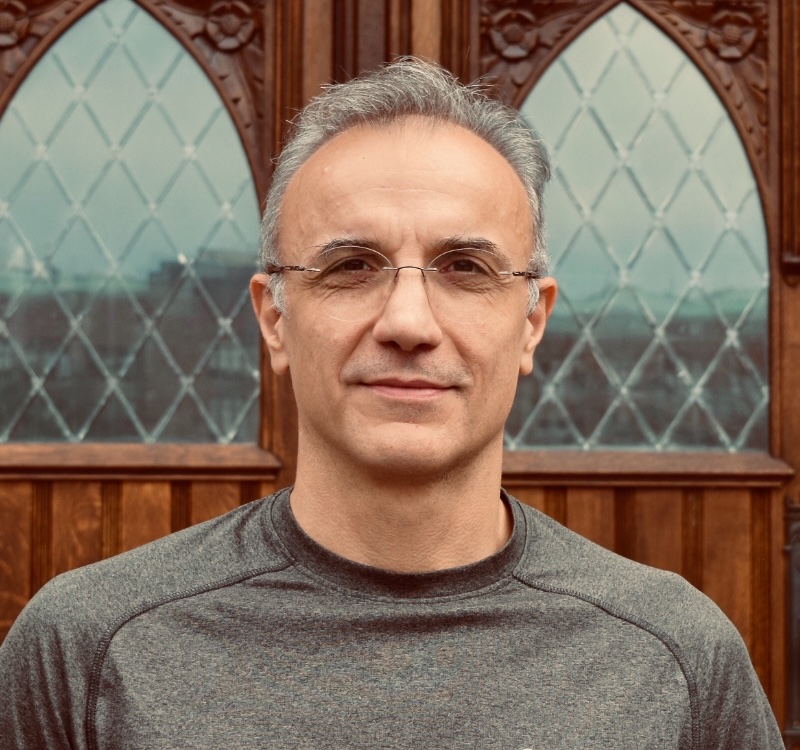 Next-generation aerospace systems – from asteroid-mining robots and spacecraft swarms to hypersonic vehicles and urban air mobility – demand autonomy that transcends current limits. These missions require spacecraft to operate safely, efficiently, and decisively in unpredictable environments, where every decision must balance performance, resource constraints, and risk. The core challenge lies in solving complex optimal control problems in real time while: i) Exploiting full system capabilities without violating safety limits, ii) Certifying algorithmic reliability for critical Guidance, Navigation, & Control (GN&C) systems, iii) Proving robustness in the presence of uncertainty. Our solution is optimization-based control. By transforming GN&C challenges into structured optimization problems and applying methods of convexification, we achieve provably robust, computationally tractable solutions.
Next-generation aerospace systems – from asteroid-mining robots and spacecraft swarms to hypersonic vehicles and urban air mobility – demand autonomy that transcends current limits. These missions require spacecraft to operate safely, efficiently, and decisively in unpredictable environments, where every decision must balance performance, resource constraints, and risk. The core challenge lies in solving complex optimal control problems in real time while: i) Exploiting full system capabilities without violating safety limits, ii) Certifying algorithmic reliability for critical Guidance, Navigation, & Control (GN&C) systems, iii) Proving robustness in the presence of uncertainty. Our solution is optimization-based control. By transforming GN&C challenges into structured optimization problems and applying methods of convexification, we achieve provably robust, computationally tractable solutions.
-
- Date: Sunday, April 6, 2025 - Friday, April 11, 2025
Location: Hyderabad, India
MERL Contacts: Wael H. Ali; Petros T. Boufounos; Radu Corcodel; François Germain; Chiori Hori; Siddarth Jain; Devesh K. Jha; Toshiaki Koike-Akino; Jonathan Le Roux; Yanting Ma; Hassan Mansour; Yoshiki Masuyama; Joshua Rapp; Diego Romeres; Anthony Vetro; Pu (Perry) Wang; Gordon Wichern
Research Areas: Artificial Intelligence, Communications, Computational Sensing, Electronic and Photonic Devices, Machine Learning, Robotics, Signal Processing, Speech & Audio
Brief - MERL has made numerous contributions to both the organization and technical program of ICASSP 2025, which is being held in Hyderabad, India from April 6-11, 2025.
Sponsorship
MERL is proud to be a Silver Patron of the conference and will participate in the student job fair on Thursday, April 10. Please join this session to learn more about employment opportunities at MERL, including openings for research scientists, post-docs, and interns.
MERL is pleased to be the sponsor of two IEEE Awards that will be presented at the conference. We congratulate Prof. Björn Erik Ottersten, the recipient of the 2025 IEEE Fourier Award for Signal Processing, and Prof. Shrikanth Narayanan, the recipient of the 2025 IEEE James L. Flanagan Speech and Audio Processing Award. Both awards will be presented in-person at ICASSP by Anthony Vetro, MERL President & CEO.
Technical Program
MERL is presenting 15 papers in the main conference on a wide range of topics including source separation, sound event detection, sound anomaly detection, speaker diarization, music generation, robot action generation from video, indoor airflow imaging, WiFi sensing, Doppler single-photon Lidar, optical coherence tomography, and radar imaging. Another paper on spatial audio will be presented at the Generative Data Augmentation for Real-World Signal Processing Applications (GenDA) Satellite Workshop.
MERL Researchers Petros Boufounos and Hassan Mansour will present a Tutorial on “Computational Methods in Radar Imaging” in the afternoon of Monday, April 7.
Petros Boufounos will also be giving an industry talk on Thursday April 10 at 12pm, on “A Physics-Informed Approach to Sensing".
About ICASSP
ICASSP is the flagship conference of the IEEE Signal Processing Society, and the world's largest and most comprehensive technical conference focused on the research advances and latest technological development in signal and information processing. The event has been attracting more than 4000 participants each year.
-
- Date & Time: Wednesday, March 26, 2025; 1:00 PM
Speaker: Andy Zou, CMU & Gray Swan AI
MERL Host: Ye Wang
Research Areas: Artificial Intelligence, Machine Learning, Information Security
Abstract 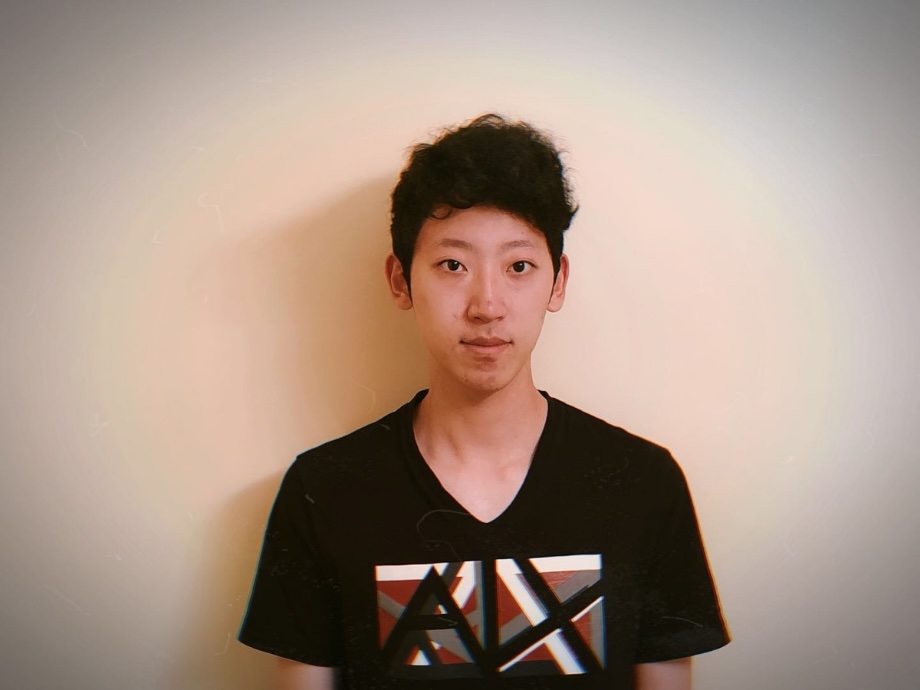 This presentation demonstrates how red teaming uncovers critical vulnerabilities in AI agents that challenge assumptions about safe deployment. The talk discusses the risks of integrating AI into real-world applications and recommends practical safeguards to enhance resilience and ensure dependable deployment in high-risk settings.
This presentation demonstrates how red teaming uncovers critical vulnerabilities in AI agents that challenge assumptions about safe deployment. The talk discusses the risks of integrating AI into real-world applications and recommends practical safeguards to enhance resilience and ensure dependable deployment in high-risk settings.
-
- Date & Time: Tuesday, March 11, 2025; 12:00 PM
Speaker: Dick den Hertog, University of Amsterdam
MERL Host: Arvind Raghunathan
Research Areas: Data Analytics, Optimization
Abstract  Increasing ocean plastic pollution is irreversibly harming ecosystems and human economic activities. We partner with a nonprofit organization and use optimization to help clean up oceans from plastic faster. Specifically, we optimize the route of their plastic collection system in the ocean to maximize the quantity of plastic collected over time. We formulate the problem as a longest path problem in a well-structured graph. However, because collection directly impacts future plastic density, the corresponding edge lengths are nonlinear polynomials. After analyzing the structural properties of the edge lengths, we propose a search-and-bound method, which leverages a relaxation of the problem solvable via dynamic programming and clustering, to efficiently find high-quality solutions (within 6% optimal in practice) and develop a tailored branch-and-bound strategy to solve it to provable optimality. On one year of ocean data, our optimization-based routing approach increases the quantity of plastic collected by more than 60% compared with the current routing strategy, hence speeding up the progress toward plastic-free oceans.
Increasing ocean plastic pollution is irreversibly harming ecosystems and human economic activities. We partner with a nonprofit organization and use optimization to help clean up oceans from plastic faster. Specifically, we optimize the route of their plastic collection system in the ocean to maximize the quantity of plastic collected over time. We formulate the problem as a longest path problem in a well-structured graph. However, because collection directly impacts future plastic density, the corresponding edge lengths are nonlinear polynomials. After analyzing the structural properties of the edge lengths, we propose a search-and-bound method, which leverages a relaxation of the problem solvable via dynamic programming and clustering, to efficiently find high-quality solutions (within 6% optimal in practice) and develop a tailored branch-and-bound strategy to solve it to provable optimality. On one year of ocean data, our optimization-based routing approach increases the quantity of plastic collected by more than 60% compared with the current routing strategy, hence speeding up the progress toward plastic-free oceans.
-
- Date & Time: Wednesday, March 5, 2025; 12:00 PM
Speaker: Qing Qu, University of Michigan
MERL Host: Pu (Perry) Wang
Research Areas: Artificial Intelligence, Computational Sensing, Machine Learning, Signal Processing
Abstract 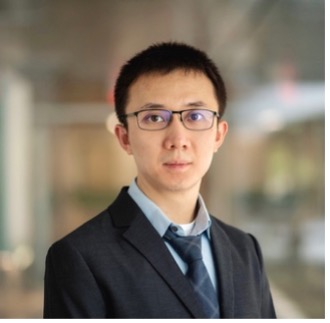 Recent empirical studies have shown that diffusion models possess a unique reproducibility property, transiting from memorization to generalization as the number of training samples increases. This demonstrates that diffusion models can effectively learn image distributions and generate new samples. Remarkably, these models achieve this even with a small number of training samples, despite the challenge of large image dimensions, effectively circumventing the curse of dimensionality. In this work, we provide theoretical insights into this phenomenon by leveraging two key empirical observations: (i) the low intrinsic dimensionality of image datasets and (ii) the low-rank property of the denoising autoencoder in trained diffusion models. With these setups, we rigorously demonstrate that optimizing the training loss of diffusion models is equivalent to solving the canonical subspace clustering problem across the training samples. This insight has practical implications for training and controlling diffusion models. Specifically, it enables us to precisely characterize the minimal number of samples necessary for accurately learning the low-rank data support, shedding light on the phase transition from memorization to generalization. Additionally, we empirically establish a correspondence between the subspaces and the semantic representations of image data, which enables one-step, transferrable, efficient image editing. Moreover, our results have profound practical implications for training efficiency and model safety, and they also open up numerous intriguing theoretical questions for future research.
Recent empirical studies have shown that diffusion models possess a unique reproducibility property, transiting from memorization to generalization as the number of training samples increases. This demonstrates that diffusion models can effectively learn image distributions and generate new samples. Remarkably, these models achieve this even with a small number of training samples, despite the challenge of large image dimensions, effectively circumventing the curse of dimensionality. In this work, we provide theoretical insights into this phenomenon by leveraging two key empirical observations: (i) the low intrinsic dimensionality of image datasets and (ii) the low-rank property of the denoising autoencoder in trained diffusion models. With these setups, we rigorously demonstrate that optimizing the training loss of diffusion models is equivalent to solving the canonical subspace clustering problem across the training samples. This insight has practical implications for training and controlling diffusion models. Specifically, it enables us to precisely characterize the minimal number of samples necessary for accurately learning the low-rank data support, shedding light on the phase transition from memorization to generalization. Additionally, we empirically establish a correspondence between the subspaces and the semantic representations of image data, which enables one-step, transferrable, efficient image editing. Moreover, our results have profound practical implications for training efficiency and model safety, and they also open up numerous intriguing theoretical questions for future research.
-
- Date & Time: Wednesday, February 26, 2025; 11:00 AM
Speaker: Petar Veličković, Google DeepMind
MERL Host: Anoop Cherian
Research Areas: Artificial Intelligence, Computer Vision, Machine Learning
Abstract 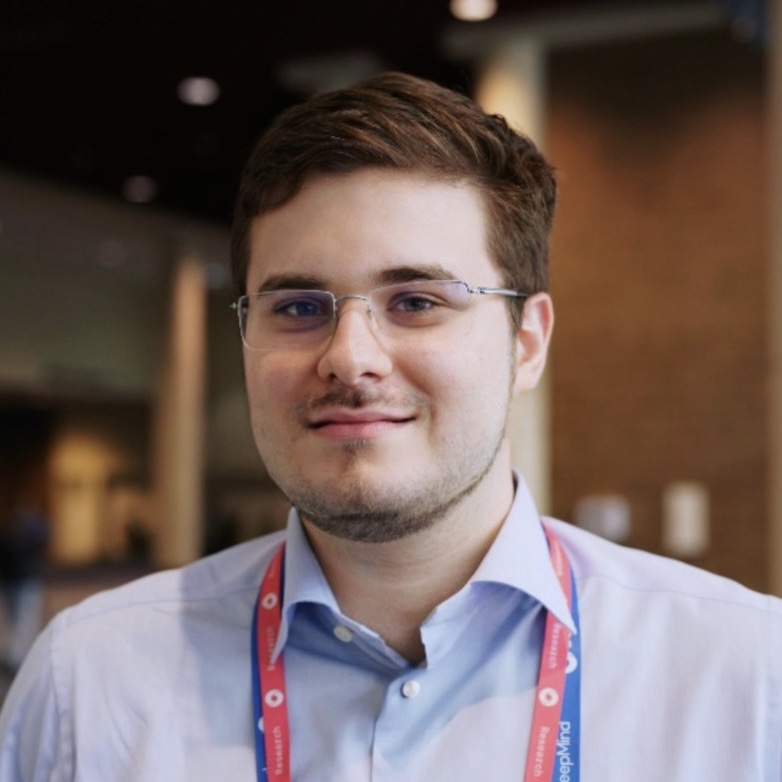 Recent years have seen a significant surge in complex AI systems for competitive programming, capable of performing at admirable levels against human competitors. While steady progress has been made, the highest percentiles still remain out of reach for these methods on standard competition platforms such as Codeforces. In this talk, I will describe and dive into our recent work, where we focussed on combinatorial competitive programming. In combinatorial challenges, the target is to find as-good-as-possible solutions to otherwise computationally intractable problems, over specific given inputs. We hypothesise that this scenario offers a unique testbed for human-AI synergy, as human programmers can write a backbone of a heuristic solution, after which AI can be used to optimise the scoring function used by the heuristic. We deploy our approach on previous iterations of Hash Code, a global team programming competition inspired by NP-hard software engineering problems at Google, and we leverage FunSearch to evolve our scoring functions. Our evolved solutions significantly improve the attained scores from their baseline, successfully breaking into the top percentile on all previous Hash Code online qualification rounds, and outperforming the top human teams on several. To the best of our knowledge, this is the first known AI-assisted top-tier result in competitive programming.
Recent years have seen a significant surge in complex AI systems for competitive programming, capable of performing at admirable levels against human competitors. While steady progress has been made, the highest percentiles still remain out of reach for these methods on standard competition platforms such as Codeforces. In this talk, I will describe and dive into our recent work, where we focussed on combinatorial competitive programming. In combinatorial challenges, the target is to find as-good-as-possible solutions to otherwise computationally intractable problems, over specific given inputs. We hypothesise that this scenario offers a unique testbed for human-AI synergy, as human programmers can write a backbone of a heuristic solution, after which AI can be used to optimise the scoring function used by the heuristic. We deploy our approach on previous iterations of Hash Code, a global team programming competition inspired by NP-hard software engineering problems at Google, and we leverage FunSearch to evolve our scoring functions. Our evolved solutions significantly improve the attained scores from their baseline, successfully breaking into the top percentile on all previous Hash Code online qualification rounds, and outperforming the top human teams on several. To the best of our knowledge, this is the first known AI-assisted top-tier result in competitive programming.
-
- Date & Time: Wednesday, January 29, 2025; 1:00 PM
Speaker: David Lindell, University of Toronto
MERL Host: Joshua Rapp
Research Areas: Computational Sensing, Computer Vision, Signal Processing
Abstract 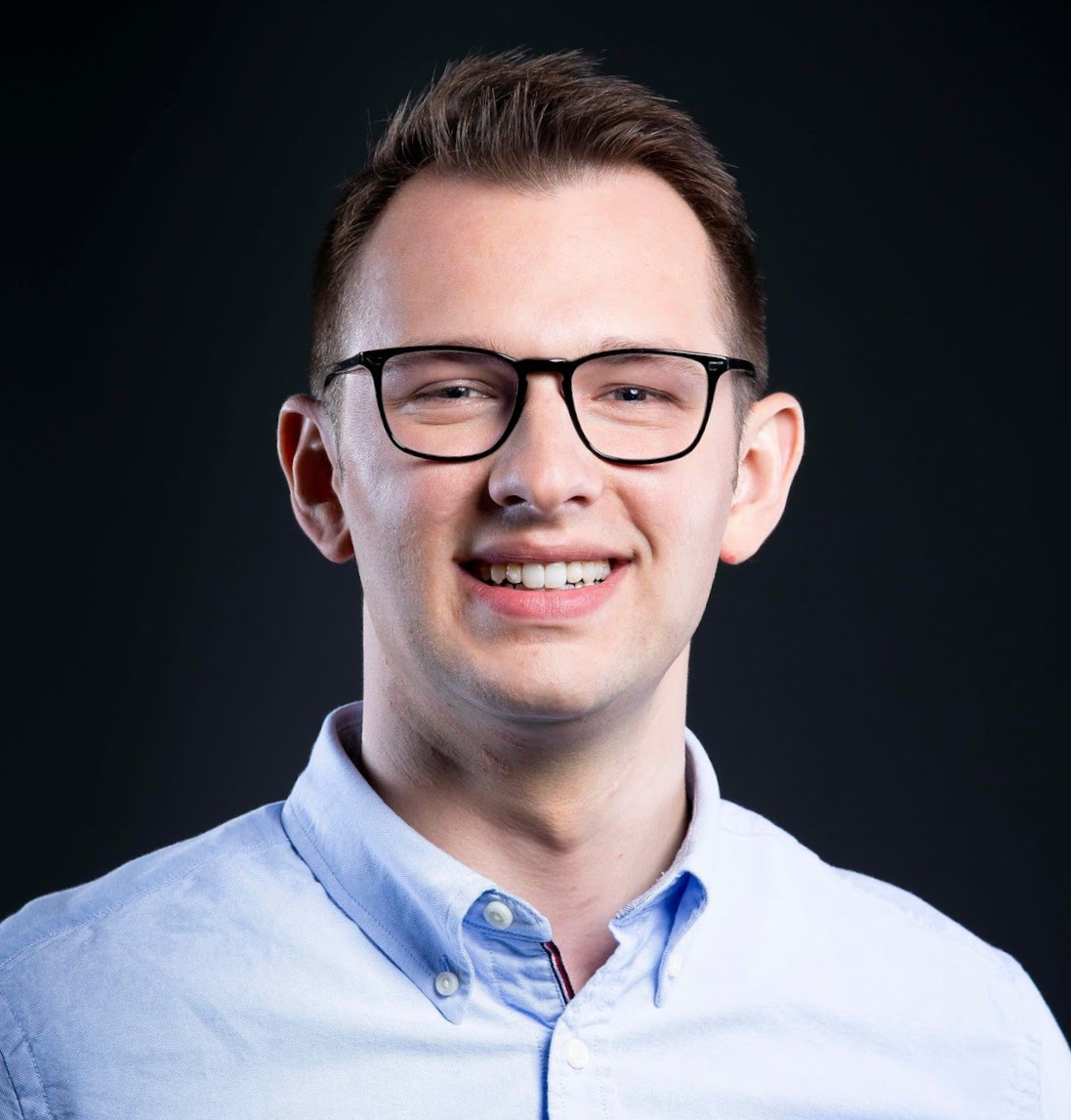 The observed timescales of the universe span from the exasecond scale (~1e18 seconds) down to the zeptosecond scale (~1e-21 seconds). While specialized imaging systems can capture narrow slices of this temporal spectrum in the ultra-fast regime (e.g., nanoseconds to picoseconds; 1e-9 to 1e-12 s), they cannot simultaneously capture both slow (> 1 second) and ultra-fast events (< 1 nanosecond). Further, ultra-fast imaging systems are conventionally limited to single-viewpoint capture, hindering 3D visualization at ultra-fast timescales. In this talk, I discuss (1) new computational algorithms that turn a single-photon detector into an "ultra-wideband" imaging system that captures events from seconds to picoseconds; and (2) a method for neural rendering using multi-viewpoint, ultra-fast videos captured using single-photon detectors. The latter approach enables rendering videos of propagating light from novel viewpoints, observation of viewpoint-dependent changes in light transport predicted by Einstein, recovery of material properties, and accurate 3D reconstruction from multiply scattered light. Finally, I discuss future directions in ultra-wideband imaging.
The observed timescales of the universe span from the exasecond scale (~1e18 seconds) down to the zeptosecond scale (~1e-21 seconds). While specialized imaging systems can capture narrow slices of this temporal spectrum in the ultra-fast regime (e.g., nanoseconds to picoseconds; 1e-9 to 1e-12 s), they cannot simultaneously capture both slow (> 1 second) and ultra-fast events (< 1 nanosecond). Further, ultra-fast imaging systems are conventionally limited to single-viewpoint capture, hindering 3D visualization at ultra-fast timescales. In this talk, I discuss (1) new computational algorithms that turn a single-photon detector into an "ultra-wideband" imaging system that captures events from seconds to picoseconds; and (2) a method for neural rendering using multi-viewpoint, ultra-fast videos captured using single-photon detectors. The latter approach enables rendering videos of propagating light from novel viewpoints, observation of viewpoint-dependent changes in light transport predicted by Einstein, recovery of material properties, and accurate 3D reconstruction from multiply scattered light. Finally, I discuss future directions in ultra-wideband imaging.
-
- Date & Time: Wednesday, November 20, 2024; 1:00 PM
Speaker: Di Shi, New Mexico State University
MERL Host: Hongbo Sun
Research Areas: Artificial Intelligence, Data Analytics, Optimization
Abstract  This presentation delves into the challenges and advancements in optimizing power system operations through Grid Mind, an innovative, data-driven framework designed to enhance the integration of renewable energy sources. Utilizing advanced learning algorithms, Grid Mind excels in strategic resource allocation and control, significantly improving efficiency and reliability in power systems with high renewable energy penetration. The transformative potential of this AI-assisted technology is highlighted through real-world applications, demonstrating its effectiveness in addressing the complexities of modern power systems. In addition, critical safety considerations and practical deployment challenges are explored, emphasizing the need for robust, secure, and adaptable solutions. This talk also discusses the capabilities of Grid Mind as a distributed, learning-based system optimized for edge devices, marking a significant advancement toward sustainable, safe, and efficient power system operations in an era dominated by renewable energy.
This presentation delves into the challenges and advancements in optimizing power system operations through Grid Mind, an innovative, data-driven framework designed to enhance the integration of renewable energy sources. Utilizing advanced learning algorithms, Grid Mind excels in strategic resource allocation and control, significantly improving efficiency and reliability in power systems with high renewable energy penetration. The transformative potential of this AI-assisted technology is highlighted through real-world applications, demonstrating its effectiveness in addressing the complexities of modern power systems. In addition, critical safety considerations and practical deployment challenges are explored, emphasizing the need for robust, secure, and adaptable solutions. This talk also discusses the capabilities of Grid Mind as a distributed, learning-based system optimized for edge devices, marking a significant advancement toward sustainable, safe, and efficient power system operations in an era dominated by renewable energy.
-
- Date & Time: Wednesday, October 30, 2024; 1:00 PM
Speaker: Samuel Clarke, Stanford University
MERL Host: Gordon Wichern
Research Areas: Artificial Intelligence, Machine Learning, Robotics, Speech & Audio
Abstract 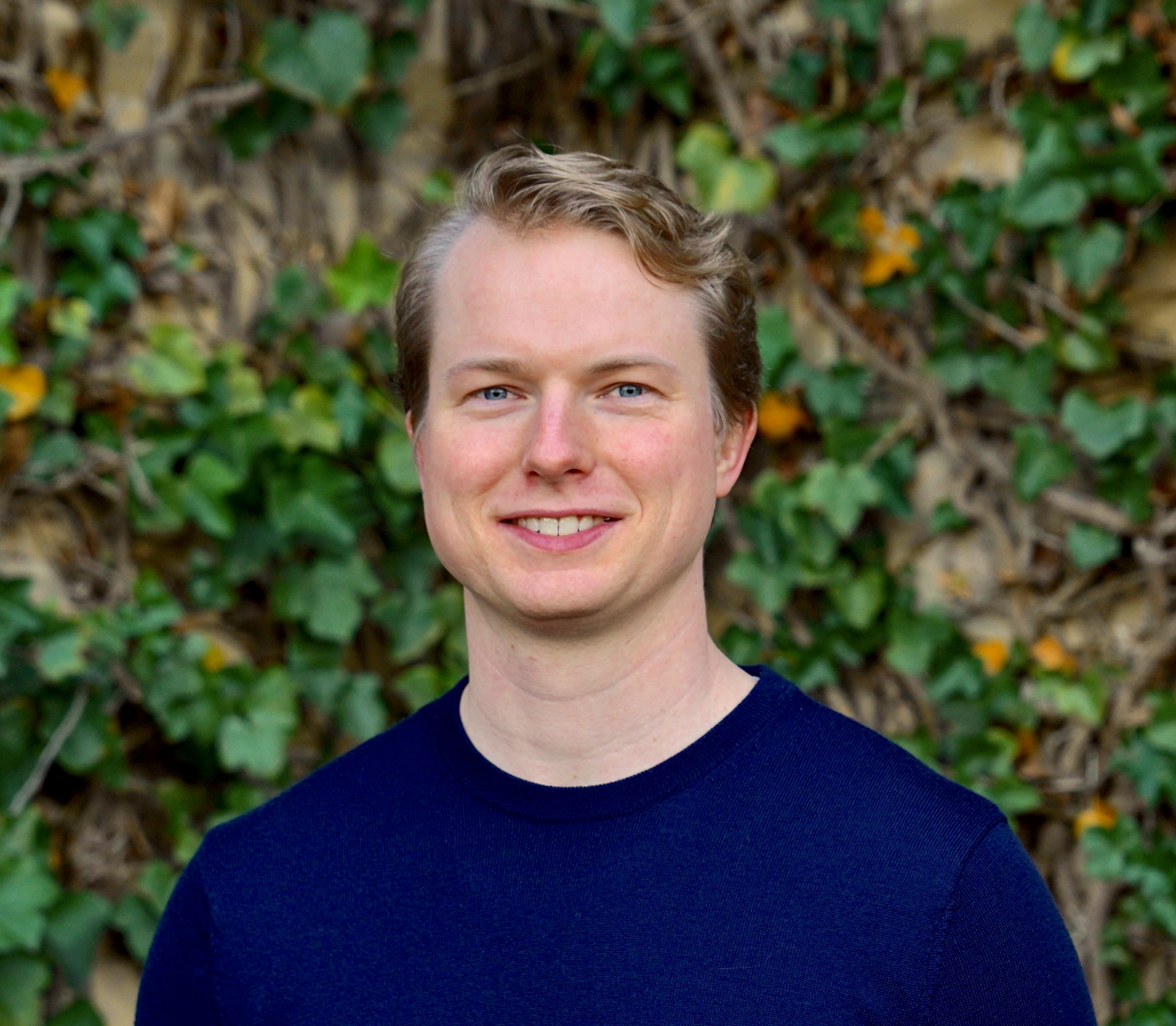 Acoustic perception is invaluable to humans and robots in understanding objects and events in their environments. These sounds are dependent on properties of the source, the environment, and the receiver. Many humans possess remarkable intuition both to infer key properties of each of these three aspects from a sound and to form expectations of how these different aspects would affect the sound they hear. In order to equip robots and AI agents with similar if not stronger capabilities, our research has taken a two-fold path. First, we collect high-fidelity datasets in both controlled and uncontrolled environments which capture real sounds of objects and rooms. Second, we introduce differentiable physics-based models that can estimate acoustic properties of objects and rooms from minimal amounts of real audio data, then can predict new sounds from these objects and rooms under novel, “unseen” conditions.
Acoustic perception is invaluable to humans and robots in understanding objects and events in their environments. These sounds are dependent on properties of the source, the environment, and the receiver. Many humans possess remarkable intuition both to infer key properties of each of these three aspects from a sound and to form expectations of how these different aspects would affect the sound they hear. In order to equip robots and AI agents with similar if not stronger capabilities, our research has taken a two-fold path. First, we collect high-fidelity datasets in both controlled and uncontrolled environments which capture real sounds of objects and rooms. Second, we introduce differentiable physics-based models that can estimate acoustic properties of objects and rooms from minimal amounts of real audio data, then can predict new sounds from these objects and rooms under novel, “unseen” conditions.
-
- Date & Time: Tuesday, November 19, 2024; 1:30-2:10pm
Location: Virtual Event
Speaker: Prof. Na Li, Harvard University Brief - MERL is excited to announce the featured keynote speaker for our Virtual Open House (VOH) 2024: Prof. Na Li from Harvard University.
Our VOH this year will take place on November 19th, 1:00pm - 4:30pm (EST). Prof. Li’s talk is scheduled for 1:30-2:10pm (EST). For details and agenda of the event, please visit: https://merl.com/events/voh24
Join us to learn more about who we are, what we do, and discuss our internship, post-doc, and full-time employment opportunities. To register, go to: https://mailchi.mp/merl/voh24
Title: Representation-based Learning and Control for Dynamical Systems
Abstract: The explosive growth of machine learning and data-driven methodologies have revolutionized numerous fields. Yet, the translation of these successes to the domain of dynamical physical systems remains a significant challenge. Closing the loop from data to actions in these systems faces many difficulties, stemming from the need for sample efficiency and computational feasibility, along with many other requirements such as verifiability, robustness, and safety. In this talk, we bridge this gap by introducing innovative representations to develop nonlinear stochastic control and reinforcement learning methods. Key in the representation is to represent the stochastic, nonlinear dynamics linearly onto a nonlinear feature space. We present a comprehensive framework to develop control and learning strategies which achieve efficiency, safety, robustness, and scalability with provable performance. We also show how the representation could be used to close the sim-to-real gap. Lastly, we will briefly present some concrete real-world applications, discussing how domain knowledge is applied in practice to further close the loop from data to actions.
-
- Date: Thursday, October 17, 2024
Location: Google, Cambridge, MA
MERL Contact: Jonathan Le Roux
Research Areas: Artificial Intelligence, Machine Learning, Speech & Audio
Brief - SANE 2024, a one-day event gathering researchers and students in speech and audio from the Northeast of the American continent, was held on Thursday October 17, 2024 at Google, in Cambridge, MA.
It was the 11th edition in the SANE series of workshops, which started in 2012 and is typically held every year alternately in Boston and New York. Since the first edition, the audience has steadily grown, with a new record of 200 participants and 53 posters in 2024.
SANE 2024 featured invited talks by seven leading researchers from the Northeast as well as from the international community: Quan Wang (Google), Greta Tuckute (MIT), Mark Hamilton (MIT), Bhuvana Ramabhadran (Google), Zhiyao Duan (University of Rochester), and Chris Donahue (Carnegie Mellon University). It also featured a lively poster session with 53 posters.
SANE 2024 was co-organized by Jonathan Le Roux (MERL) and John R. Hershey (Google). SANE remained a free event thanks to generous sponsorship by Google and MERL.
Slides and videos of the talks are available from the SANE workshop website.
-
- Date & Time: Tuesday, November 19, 2024; 1:00 - 4:30 EST
Location: Virtual Event Brief - Join us for MERL's Virtual Open House (VOH) 2024 on November 19th. Live sessions will be held from 1:00-4:30pm EST, including an overview of recent activities by our research groups, a featured guest speaker and live interaction with our research staff through the Gather platform. Registered attendees will be able to browse our virtual booths at their convenience and connect with our research staff to learn about employment opportunities, including internship/post-doc openings as well as visiting faculty positions.
For agenda and details of the event, please visit: https://www.merl.com/events/voh24
To register for the VOH, please go to:
https://mailchi.mp/merl/voh24
-
- Date & Time: Wednesday, October 2, 2024; 1:00 PM
Speaker: Zhaojian Li, Mivchigan State University
MERL Host: Yebin Wang
Research Areas: Artificial Intelligence, Computer Vision, Control, Robotics
Abstract 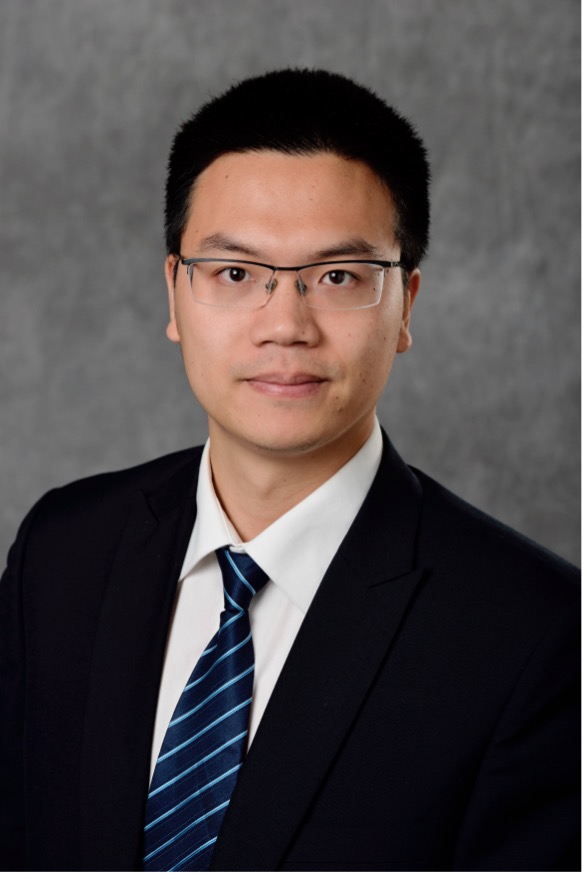 Harvesting labor is the single largest cost in apple production in the U.S. Surging cost and growing shortage of labor has forced the apple industry to seek automated harvesting solutions. Despite considerable progress in recent years, the existing robotic harvesting systems still fall short of performance expectations, lacking robustness and proving inefficient or overly complex for practical commercial deployment. In this talk, I will present the development and evaluation of a new dual-arm robotic apple harvesting system. This work is a result of a continuous collaboration between Michigan State University and U.S. Department of Agriculture.
Harvesting labor is the single largest cost in apple production in the U.S. Surging cost and growing shortage of labor has forced the apple industry to seek automated harvesting solutions. Despite considerable progress in recent years, the existing robotic harvesting systems still fall short of performance expectations, lacking robustness and proving inefficient or overly complex for practical commercial deployment. In this talk, I will present the development and evaluation of a new dual-arm robotic apple harvesting system. This work is a result of a continuous collaboration between Michigan State University and U.S. Department of Agriculture.
-
- Date & Time: Wednesday, September 18, 2024; 1:00 PM
Speaker: Tom Griffiths, Princeton University
Research Areas: Artificial Intelligence, Data Analytics, Machine Learning, Human-Computer Interaction
Abstract 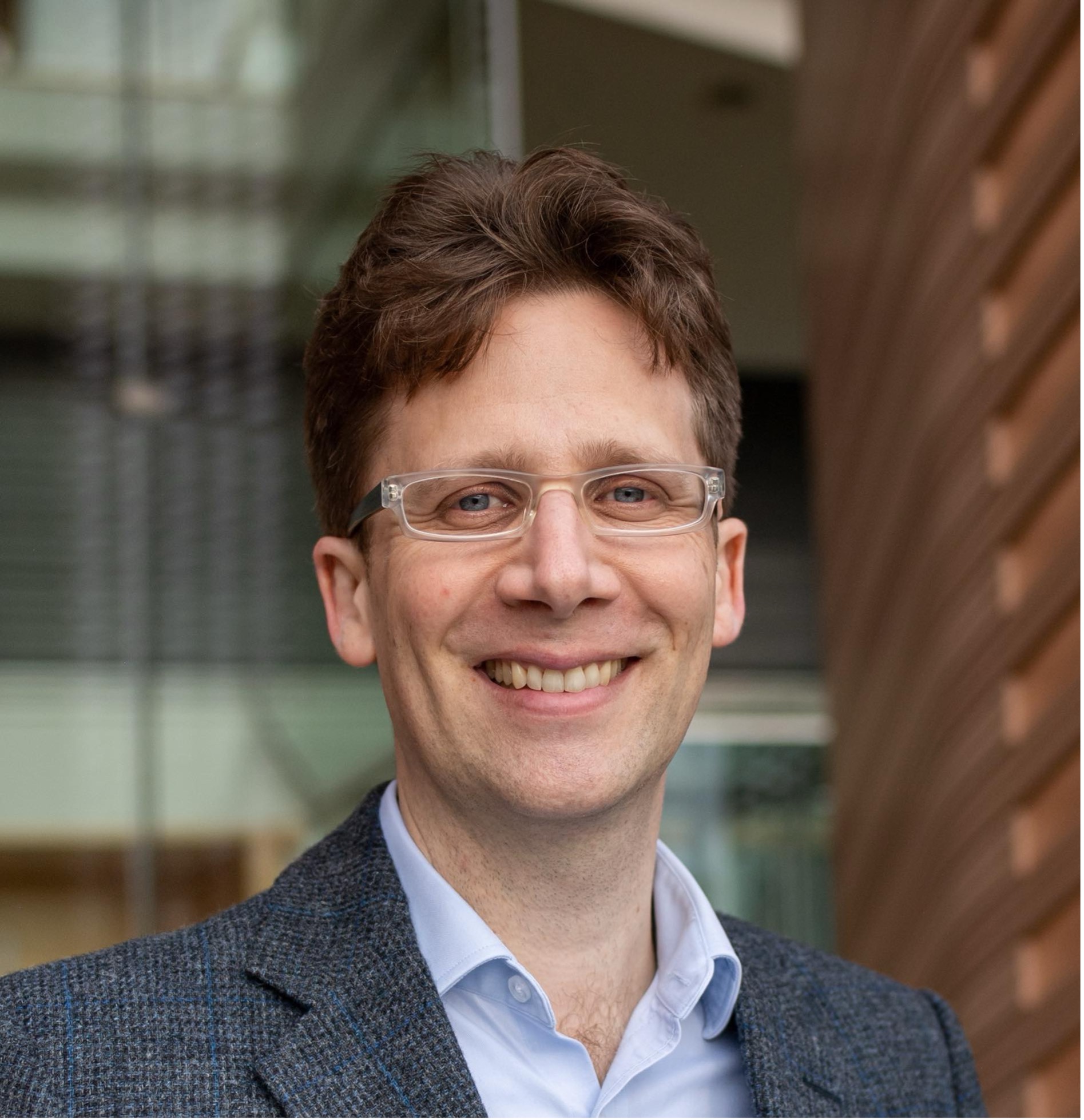 Large language models have been found to have surprising capabilities, even what have been called “sparks of artificial general intelligence.” However, understanding these models involves some significant challenges: their internal structure is extremely complicated, their training data is often opaque, and getting access to the underlying mechanisms is becoming increasingly difficult. As a consequence, researchers often have to resort to studying these systems based on their behavior. This situation is, of course, one that cognitive scientists are very familiar with — human brains are complicated systems trained on opaque data and typically difficult to study mechanistically. In this talk I will summarize some of the tools of cognitive science that are useful for understanding the behavior of large language models. Specifically, I will talk about how thinking about different levels of analysis (and Bayesian inference) can help us understand some behaviors that don’t seem particularly intelligent, how tasks like similarity judgment can be used to probe internal representations, how axiom violations can reveal interesting mechanisms, and how associations can reveal biases in systems that have been trained to be unbiased.
Large language models have been found to have surprising capabilities, even what have been called “sparks of artificial general intelligence.” However, understanding these models involves some significant challenges: their internal structure is extremely complicated, their training data is often opaque, and getting access to the underlying mechanisms is becoming increasingly difficult. As a consequence, researchers often have to resort to studying these systems based on their behavior. This situation is, of course, one that cognitive scientists are very familiar with — human brains are complicated systems trained on opaque data and typically difficult to study mechanistically. In this talk I will summarize some of the tools of cognitive science that are useful for understanding the behavior of large language models. Specifically, I will talk about how thinking about different levels of analysis (and Bayesian inference) can help us understand some behaviors that don’t seem particularly intelligent, how tasks like similarity judgment can be used to probe internal representations, how axiom violations can reveal interesting mechanisms, and how associations can reveal biases in systems that have been trained to be unbiased.
-
- Date: Friday, July 26, 2024
Location: MERL Offices
Speaker: Dr. Na Li, Harvard University
MERL Contact: Elizabeth Phillips Brief - On July 26th, MERL hosted its annual Women in Science luncheon. This event brings together MERL's female interns and employees to hear about the experiences and careers of women working in research and engineering fields. This year, we were honored to have Dr. Na Li as our guest speaker. Dr. Li, who joined MERL as a visiting faculty this summer, is a Winokur Family Professor of Electrical Engineering and Applied Mathematics at Harvard University. Dr. Li's talk highlighted her personal journey from rural China to Harvard Professor. Her insights and experiences provided invaluable inspiration to everyone in attendance. We appreciate both Dr. Li and all who participated in making this event a success. MERL remains committed to fostering an inclusive environment that supports the growth and development of women in STEM.
#WomenInScience #WomenInSTEM #MERL #Inspiration #Engineering #Research
-
- Date & Time: Wednesday, May 29, 2024; 12:00 PM
Speaker: Chuchu Fan, MIT
MERL Host: Abraham P. Vinod
Research Areas: Artificial Intelligence, Control, Machine Learning
Abstract 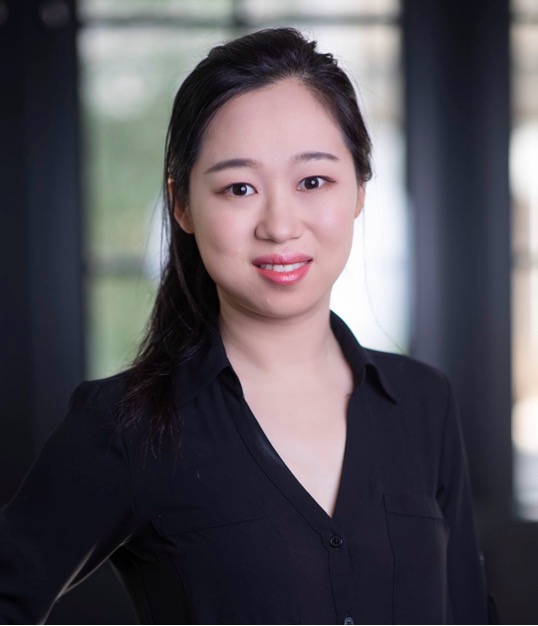 Learning-enabled control systems have demonstrated impressive empirical performance on challenging control problems in robotics. However, this performance often arrives with the trade-off of diminished transparency and the absence of guarantees regarding the safety and stability of the learned controllers. In recent years, new techniques have emerged to provide these guarantees by learning certificates alongside control policies — these certificates provide concise, data-driven proofs that guarantee the safety and stability of the learned control system. These methods not only allow the user to verify the safety of a learned controller but also provide supervision during training, allowing safety and stability requirements to influence the training process itself. In this talk, we present two exciting updates on neural certificates. In the first work, we explore the use of graph neural networks to learn collision-avoidance certificates that can generalize to unseen and very crowded environments. The second work presents a novel reinforcement learning approach that can produce certificate functions with the policies while addressing the instability issues in the optimization process. Finally, if time permits, I will also talk about my group's recent work using LLM and domain-specific task and motion planners to allow natural language as input for robot planning.
Learning-enabled control systems have demonstrated impressive empirical performance on challenging control problems in robotics. However, this performance often arrives with the trade-off of diminished transparency and the absence of guarantees regarding the safety and stability of the learned controllers. In recent years, new techniques have emerged to provide these guarantees by learning certificates alongside control policies — these certificates provide concise, data-driven proofs that guarantee the safety and stability of the learned control system. These methods not only allow the user to verify the safety of a learned controller but also provide supervision during training, allowing safety and stability requirements to influence the training process itself. In this talk, we present two exciting updates on neural certificates. In the first work, we explore the use of graph neural networks to learn collision-avoidance certificates that can generalize to unseen and very crowded environments. The second work presents a novel reinforcement learning approach that can produce certificate functions with the policies while addressing the instability issues in the optimization process. Finally, if time permits, I will also talk about my group's recent work using LLM and domain-specific task and motion planners to allow natural language as input for robot planning.
-
- Date & Time: Wednesday, April 10, 2024; 12:00 PM
Speaker: Na Li, Harvard University
MERL Host: Yebin Wang
Research Areas: Control, Dynamical Systems, Machine Learning
Abstract 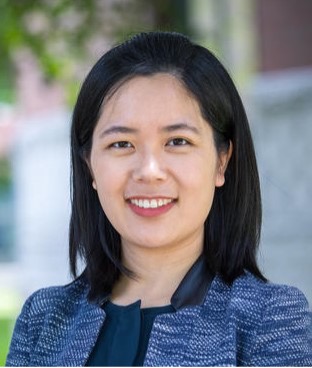 The explosive growth of machine learning and data-driven methodologies have revolutionized numerous fields. Yet, translating these successes to the domain of dynamical, physical systems remains a significant challenge, hindered by the complex and often unpredictable nature of such environments. Closing the loop from data to actions in these systems faces many difficulties, stemming from the need for sample efficiency and computational feasibility amidst intricate dynamics, along with many other requirements such as verifiability, robustness, and safety. In this talk, we bridge this gap by introducing innovative approaches that harness representation-based methods, domain knowledge, and the physical structures of systems. We present a comprehensive framework that integrates these components to develop reinforcement learning and control strategies that are not only tailored for the complexities of physical systems but also achieve efficiency, safety, and robustness with provable performance.
The explosive growth of machine learning and data-driven methodologies have revolutionized numerous fields. Yet, translating these successes to the domain of dynamical, physical systems remains a significant challenge, hindered by the complex and often unpredictable nature of such environments. Closing the loop from data to actions in these systems faces many difficulties, stemming from the need for sample efficiency and computational feasibility amidst intricate dynamics, along with many other requirements such as verifiability, robustness, and safety. In this talk, we bridge this gap by introducing innovative approaches that harness representation-based methods, domain knowledge, and the physical structures of systems. We present a comprehensive framework that integrates these components to develop reinforcement learning and control strategies that are not only tailored for the complexities of physical systems but also achieve efficiency, safety, and robustness with provable performance.
-
- Date & Time: Wednesday, April 3, 2024; 12:00 PM
Speaker: Fadel Adib, MIT & Cartesian
MERL Host: Wael H. Ali
Research Areas: Computational Sensing, Dynamical Systems, Signal Processing
Abstract 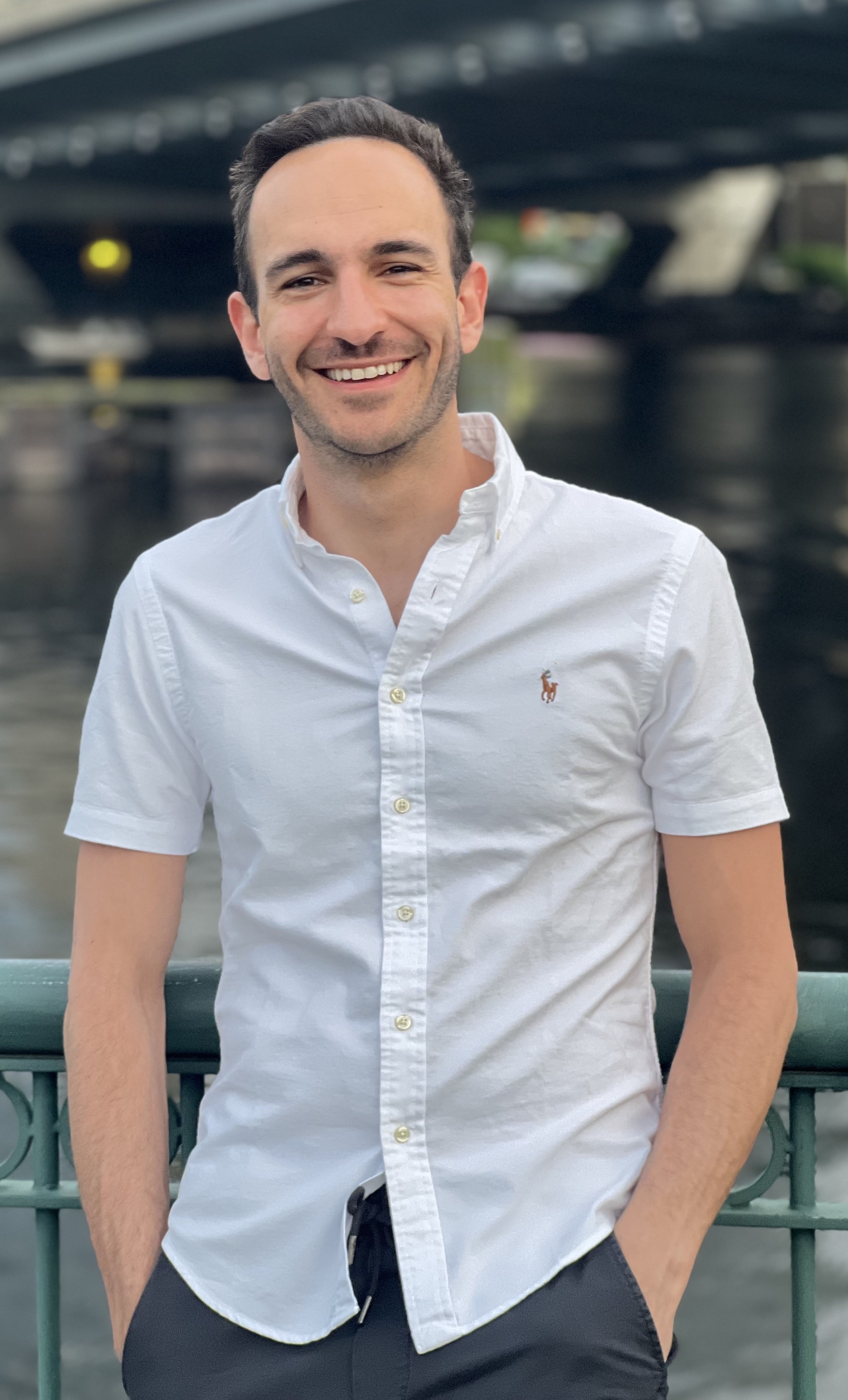 This talk will cover a new generation of technologies that can sense, connect, and perceive the physical world in unprecedented ways. These technologies can uncover hidden worlds around us, promising transformative impact on areas spanning climate change monitoring, ocean mapping, healthcare, food security, supply chain, and even extraterrestrial exploration.
This talk will cover a new generation of technologies that can sense, connect, and perceive the physical world in unprecedented ways. These technologies can uncover hidden worlds around us, promising transformative impact on areas spanning climate change monitoring, ocean mapping, healthcare, food security, supply chain, and even extraterrestrial exploration.
The talk will cover four core technologies invented by Prof. Adib and his team. The first is an ocean internet-of-things (IoT) that uses battery-free sensors for climate change monitoring, marine life discovery, and seafood production (aquaculture). The second is a new perception technology that enables robots to sense and manipulate hidden objects. The third is a new augmented reality headset with ``X-ray vision”, which extends human perception beyond line-of-sight. The fourth is a wireless sensing technology that can “see through walls” and monitor people’s vital signs (including their breathing, heart rate, and emotions), enabling smart environments that sense humans requiring any contact with the human body.
The talk will touch on the journey of these technologies from their inception at MIT to international collaborations and startups that are translating them to real-world impact in areas spanning healthcare, climate change, and supply chain.
-
- Date & Time: Wednesday, March 20, 2024; 1:00 PM
Speaker: Sanmi Koyejo, Stanford University
MERL Host: Jing Liu
Research Areas: Artificial Intelligence, Machine Learning
Abstract 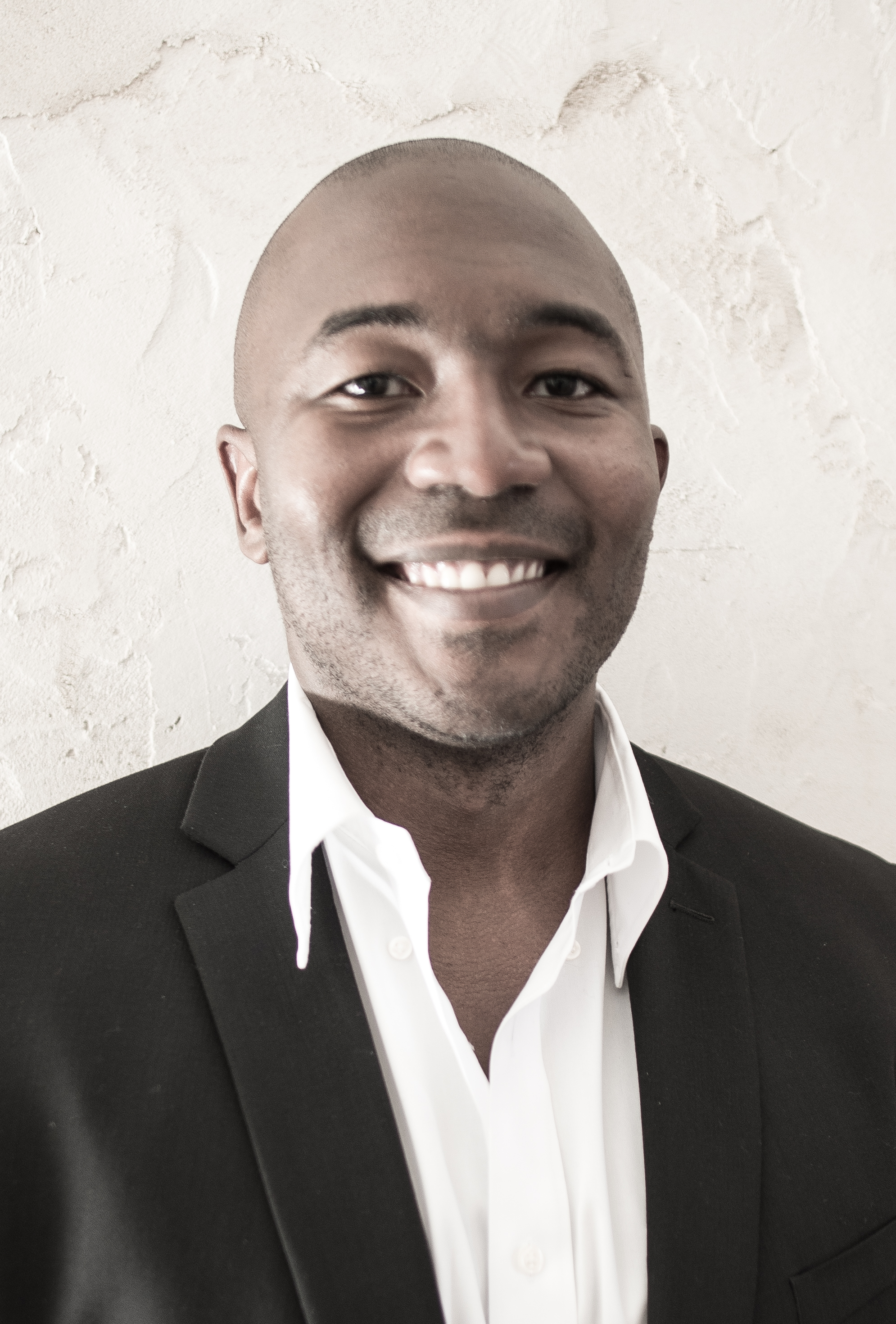 Recent work claims that large language models display emergent abilities, abilities not present in smaller-scale models that are present in larger-scale models. What makes emergent abilities intriguing is two-fold: their sharpness, transitioning seemingly instantaneously from not present to present, and their unpredictability, appearing at seemingly unforeseeable model scales. Here, we present an alternative explanation for emergent abilities: that for a particular task and model family, when analyzing fixed model outputs, emergent abilities appear due to the researcher's choice of metric rather than due to fundamental changes in model behavior with scale. Specifically, nonlinear or discontinuous metrics produce apparent emergent abilities, whereas linear or continuous metrics produce smooth, continuous predictable changes in model performance. We present our alternative explanation in a simple mathematical model. Via the presented analyses, we provide evidence that alleged emergent abilities evaporate with different metrics or with better statistics, and may not be a fundamental property of scaling AI models.
Recent work claims that large language models display emergent abilities, abilities not present in smaller-scale models that are present in larger-scale models. What makes emergent abilities intriguing is two-fold: their sharpness, transitioning seemingly instantaneously from not present to present, and their unpredictability, appearing at seemingly unforeseeable model scales. Here, we present an alternative explanation for emergent abilities: that for a particular task and model family, when analyzing fixed model outputs, emergent abilities appear due to the researcher's choice of metric rather than due to fundamental changes in model behavior with scale. Specifically, nonlinear or discontinuous metrics produce apparent emergent abilities, whereas linear or continuous metrics produce smooth, continuous predictable changes in model performance. We present our alternative explanation in a simple mathematical model. Via the presented analyses, we provide evidence that alleged emergent abilities evaporate with different metrics or with better statistics, and may not be a fundamental property of scaling AI models.
-
- Date: Sunday, April 14, 2024 - Friday, April 19, 2024
Location: Seoul, South Korea
MERL Contacts: Petros T. Boufounos; François Germain; Chiori Hori; Toshiaki Koike-Akino; Jonathan Le Roux; Hassan Mansour; Kieran Parsons; Joshua Rapp; Anthony Vetro; Pu (Perry) Wang; Gordon Wichern
Research Areas: Artificial Intelligence, Computational Sensing, Machine Learning, Robotics, Signal Processing, Speech & Audio
Brief - MERL has made numerous contributions to both the organization and technical program of ICASSP 2024, which is being held in Seoul, Korea from April 14-19, 2024.
Sponsorship and Awards
MERL is proud to be a Bronze Patron of the conference and will participate in the student job fair on Thursday, April 18. Please join this session to learn more about employment opportunities at MERL, including openings for research scientists, post-docs, and interns.
MERL is pleased to be the sponsor of two IEEE Awards that will be presented at the conference. We congratulate Prof. Stéphane G. Mallat, the recipient of the 2024 IEEE Fourier Award for Signal Processing, and Prof. Keiichi Tokuda, the recipient of the 2024 IEEE James L. Flanagan Speech and Audio Processing Award.
Jonathan Le Roux, MERL Speech and Audio Senior Team Leader, will also be recognized during the Awards Ceremony for his recent elevation to IEEE Fellow.
Technical Program
MERL will present 13 papers in the main conference on a wide range of topics including automated audio captioning, speech separation, audio generative models, speech and sound synthesis, spatial audio reproduction, multimodal indoor monitoring, radar imaging, depth estimation, physics-informed machine learning, and integrated sensing and communications (ISAC). Three workshop papers have also been accepted for presentation on audio-visual speaker diarization, music source separation, and music generative models.
Perry Wang is the co-organizer of the Workshop on Signal Processing and Machine Learning Advances in Automotive Radars (SPLAR), held on Sunday, April 14. It features keynote talks from leaders in both academia and industry, peer-reviewed workshop papers, and lightning talks from ICASSP regular tracks on signal processing and machine learning for automotive radar and, more generally, radar perception.
Gordon Wichern will present an invited keynote talk on analyzing and interpreting audio deep learning models at the Workshop on Explainable Machine Learning for Speech and Audio (XAI-SA), held on Monday, April 15. He will also appear in a panel discussion on interpretable audio AI at the workshop.
Perry Wang also co-organizes a two-part special session on Next-Generation Wi-Fi Sensing (SS-L9 and SS-L13) which will be held on Thursday afternoon, April 18. The special session includes papers on PHY-layer oriented signal processing and data-driven deep learning advances, and supports upcoming 802.11bf WLAN Sensing Standardization activities.
Petros Boufounos is participating as a mentor in ICASSP’s Micro-Mentoring Experience Program (MiME).
About ICASSP
ICASSP is the flagship conference of the IEEE Signal Processing Society, and the world's largest and most comprehensive technical conference focused on the research advances and latest technological development in signal and information processing. The event attracts more than 3000 participants.
-
- Date & Time: Friday, March 8, 2024; 1:00 PM
Speaker: Stefanos Nikolaidis, University of Southern California
MERL Host: Siddarth Jain
Research Areas: Machine Learning, Robotics, Human-Computer Interaction
Abstract 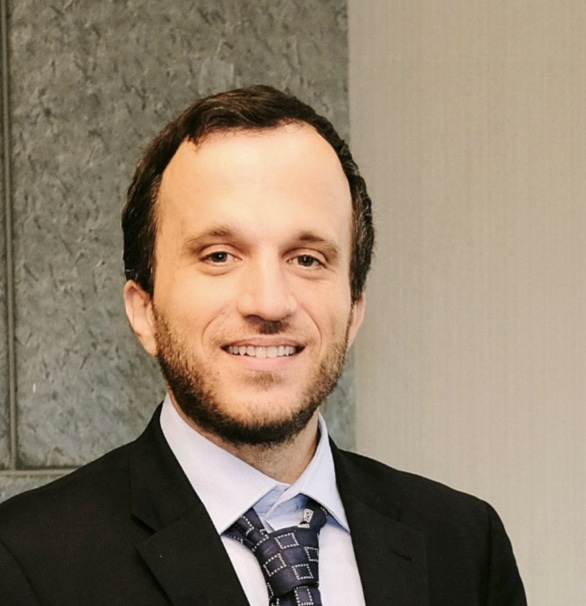 While robots have been successfully deployed in factory floors and warehouses, there has been limited progress in having them perform physical tasks with people at home and in the workplace. I aim to bridge the gap between their current performance in human environments and what robots are capable of doing, by making human-robot interactions efficient and robust.
While robots have been successfully deployed in factory floors and warehouses, there has been limited progress in having them perform physical tasks with people at home and in the workplace. I aim to bridge the gap between their current performance in human environments and what robots are capable of doing, by making human-robot interactions efficient and robust.
In the first part of my talk, I discuss enhancing the efficiency of human-robot interactions by enabling robot manipulators to infer the preference of a human teammate and proactively assist them in a collaborative task. I show how we can leverage similarities between different users and tasks to learn compact representations of user preferences and use these representations as priors for efficient inference.
In the second part, I talk about enhancing the robustness of human-robot interactions by algorithmically generating diverse and realistic scenarios in simulation that reveal system failures. I propose formulating the problem of algorithmic scenario generation as a quality diversity problem and show how standard quality diversity algorithms can discover surprising and unexpected failure cases. I then discuss the development of a new class of quality diversity algorithms that significantly improve the search of the scenario space and the integration of these algorithms with generative models, which enables the generation of complex and realistic scenarios.
Finally, I conclude the talk with applications in mining operations, collaborative manufacturing and assistive care.
-
- Date & Time: Tuesday, February 13, 2024; 1:00 PM
Speaker: Melanie Mitchell, Santa Fe Institute
MERL Host: Suhas Lohit
Research Areas: Artificial Intelligence, Computer Vision, Machine Learning, Human-Computer Interaction
Abstract 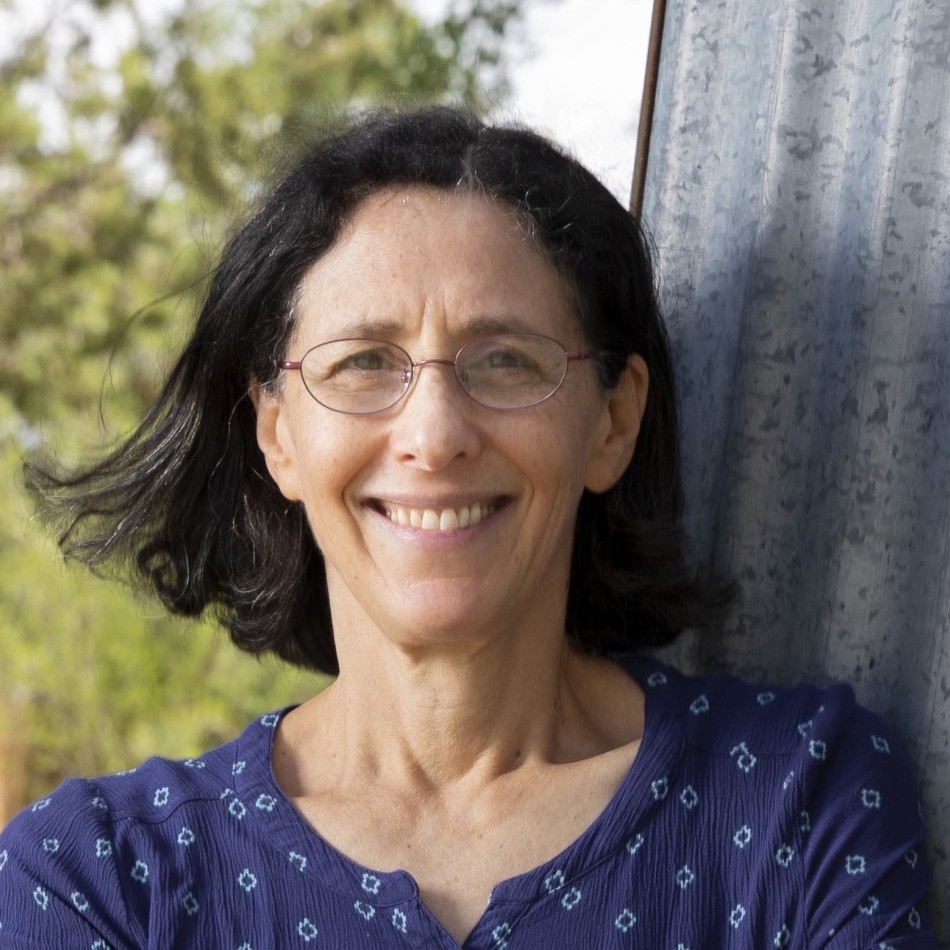 I will survey a current, heated debate in the AI research community on whether large pre-trained language models can be said to "understand" language -- and the physical and social situations language encodes -- in any important sense. I will describe arguments that have been made for and against such understanding, and, more generally, will discuss what methods can be used to fairly evaluate understanding and intelligence in AI systems. I will conclude with key questions for the broader sciences of intelligence that have arisen in light of these discussions.
I will survey a current, heated debate in the AI research community on whether large pre-trained language models can be said to "understand" language -- and the physical and social situations language encodes -- in any important sense. I will describe arguments that have been made for and against such understanding, and, more generally, will discuss what methods can be used to fairly evaluate understanding and intelligence in AI systems. I will conclude with key questions for the broader sciences of intelligence that have arisen in light of these discussions.
-
- Date & Time: Wednesday, January 31, 2024; 12:00 PM
Speaker: Greta Tuckute, MIT
Research Areas: Artificial Intelligence, Machine Learning, Speech & Audio
Abstract 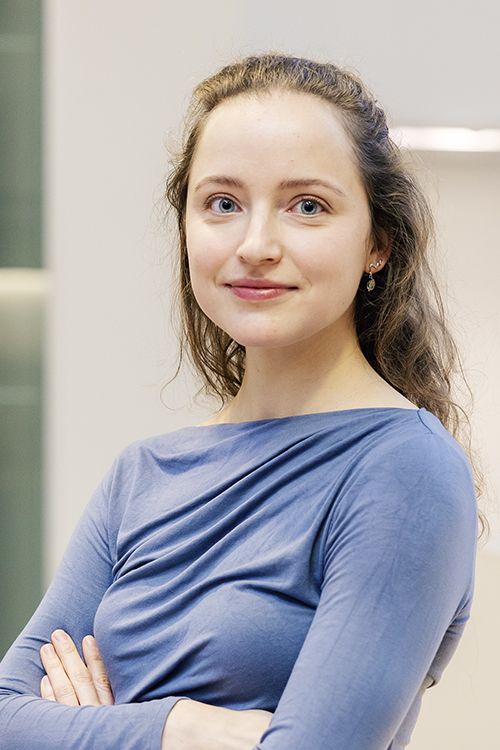 Advances in machine learning have led to powerful models for audio and language, proficient in tasks like speech recognition and fluent language generation. Beyond their immense utility in engineering applications, these models offer valuable tools for cognitive science and neuroscience. In this talk, I will demonstrate how these artificial neural network models can be used to understand how the human brain processes language. The first part of the talk will cover how audio neural networks serve as computational accounts for brain activity in the auditory cortex. The second part will focus on the use of large language models, such as those in the GPT family, to non-invasively control brain activity in the human language system.
Advances in machine learning have led to powerful models for audio and language, proficient in tasks like speech recognition and fluent language generation. Beyond their immense utility in engineering applications, these models offer valuable tools for cognitive science and neuroscience. In this talk, I will demonstrate how these artificial neural network models can be used to understand how the human brain processes language. The first part of the talk will cover how audio neural networks serve as computational accounts for brain activity in the auditory cortex. The second part will focus on the use of large language models, such as those in the GPT family, to non-invasively control brain activity in the human language system.
-
- Date & Time: Tuesday, November 28, 2023; 12:00 PM
Speaker: Kristina Monakhova, MIT and Cornell
MERL Host: Joshua Rapp
Research Areas: Computational Sensing, Computer Vision, Machine Learning, Signal Processing
Abstract 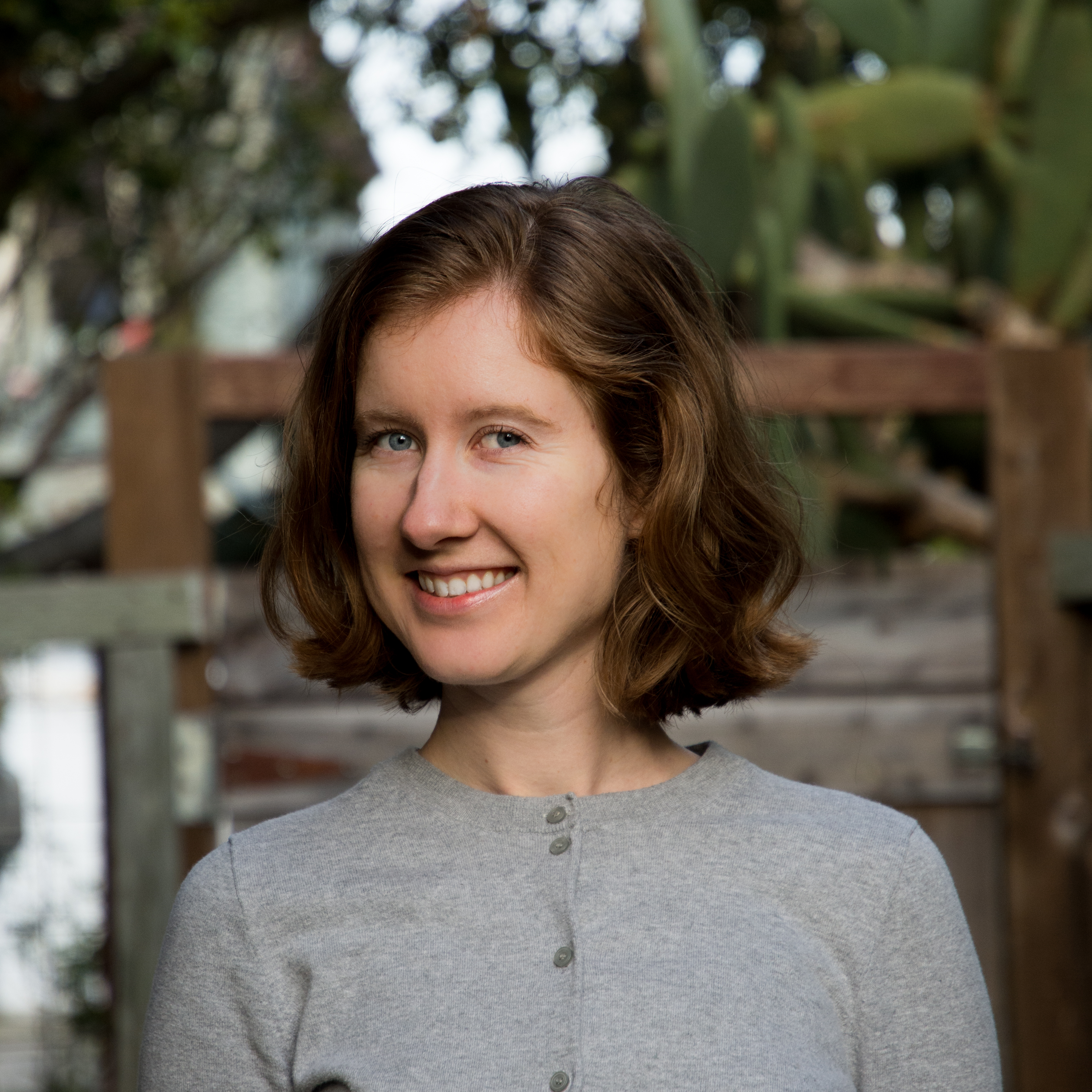 Imaging in low light settings is extremely challenging due to low photon counts, both in photography and in microscopy. In photography, imaging under low light, high gain settings often results in highly structured, non-Gaussian sensor noise that’s hard to characterize or denoise. In this talk, we address this by developing a GAN-tuned physics-based noise model to more accurately represent camera noise at the lowest light, and highest gain settings. Using this noise model, we train a video denoiser using synthetic data and demonstrate photorealistic videography at starlight (submillilux levels of illumination) for the first time.
Imaging in low light settings is extremely challenging due to low photon counts, both in photography and in microscopy. In photography, imaging under low light, high gain settings often results in highly structured, non-Gaussian sensor noise that’s hard to characterize or denoise. In this talk, we address this by developing a GAN-tuned physics-based noise model to more accurately represent camera noise at the lowest light, and highest gain settings. Using this noise model, we train a video denoiser using synthetic data and demonstrate photorealistic videography at starlight (submillilux levels of illumination) for the first time.
For multiphoton microscopy, which is a form a scanning microscopy, there’s a trade-off between field of view, phototoxicity, acquisition time, and image quality, often resulting in noisy measurements. While deep learning-based methods have shown compelling denoising performance, can we trust these methods enough for critical scientific and medical applications? In the second part of this talk, I’ll introduce a learned, distribution-free uncertainty quantification technique that can both denoise and predict pixel-wise uncertainty to gauge how much we can trust our denoiser’s performance. Furthermore, we propose to leverage this learned, pixel-wise uncertainty to drive an adaptive acquisition technique that rescans only the most uncertain regions of a sample. With our sample and algorithm-informed adaptive acquisition, we demonstrate a 120X improvement in total scanning time and total light dose for multiphoton microscopy, while successfully recovering fine structures within the sample.
-
- Date & Time: Tuesday, November 21, 2023; 11:00 AM
Speaker: Gioele Zardini, ETH Zürich and MIT
Research Areas: Control, Dynamical Systems
Abstract 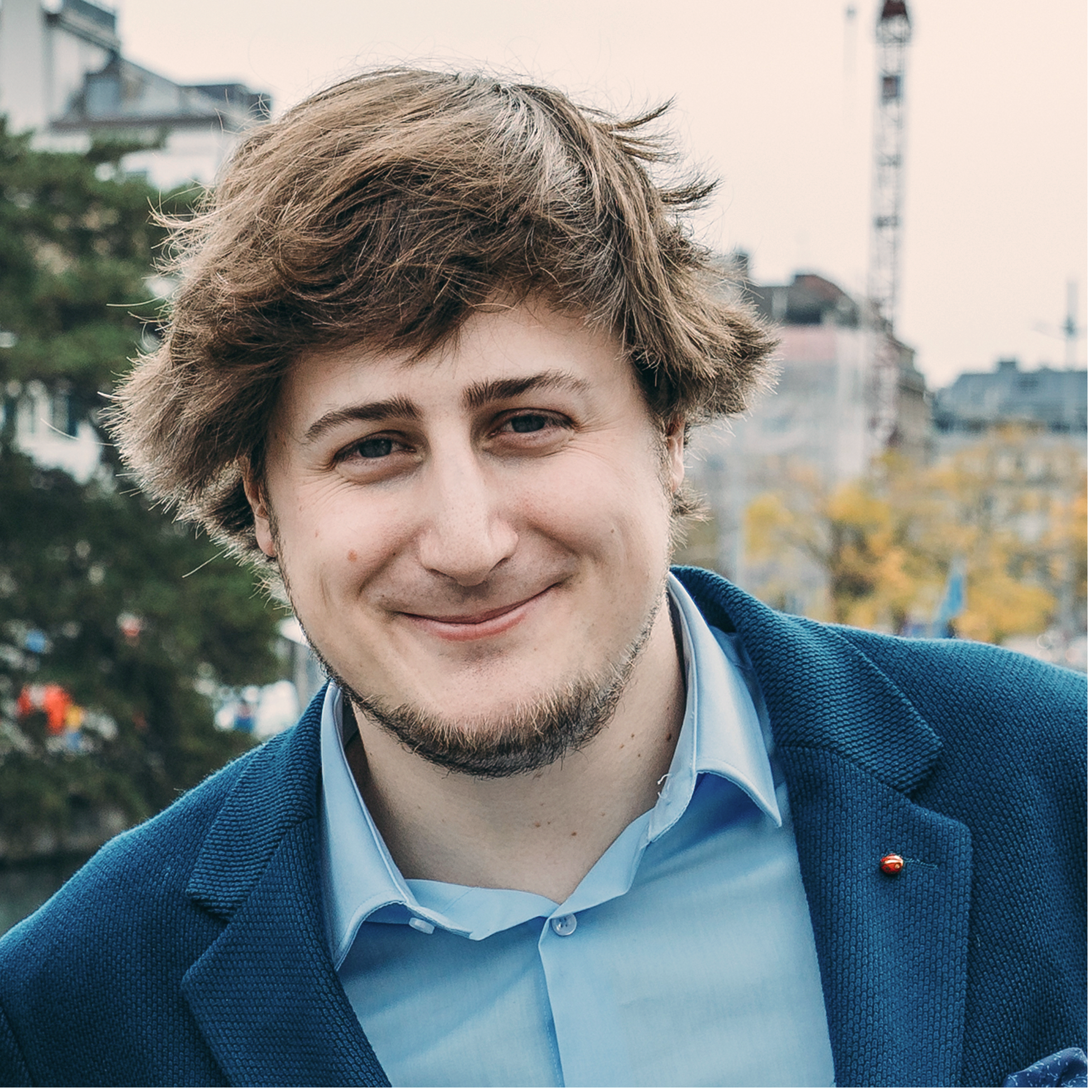 When designing complex systems, we need to consider multiple trade-offs at various abstraction levels and scales, and choices of single components need to be studied jointly. For instance, the design of future mobility solutions (e.g., autonomous vehicles, micromobility) and the design of the mobility systems they enable are closely coupled. Indeed, knowledge about the intended service of novel mobility solutions would impact their design and deployment process, whilst insights about their technological development could significantly affect transportation management policies. Optimally co-designing sociotechnical systems is a complex task for at least two reasons. On one hand, the co-design of interconnected systems (e.g., large networks of cyber-physical systems) involves the simultaneous choice of components arising from heterogeneous natures (e.g., hardware vs. software parts) and fields, while satisfying systemic constraints and accounting for multiple objectives. On the other hand, components are connected via collaborative and conflicting interactions between different stakeholders (e.g., within an intermodal mobility system). In this talk, I will present a framework to co-design complex systems, leveraging a monotone theory of co-design and tools from game theory. The framework will be instantiated in the task of designing future mobility systems, all the way from the policies that a city can design, to the autonomy of vehicles part of an autonomous mobility-on-demand service. Through various case studies, I will show how the proposed approaches allow one to efficiently answer heterogeneous questions, unifying different modeling techniques and promoting interdisciplinarity, modularity, and compositionality. I will then discuss open challenges for compositional systems design optimization, and present my agenda to tackle them.
When designing complex systems, we need to consider multiple trade-offs at various abstraction levels and scales, and choices of single components need to be studied jointly. For instance, the design of future mobility solutions (e.g., autonomous vehicles, micromobility) and the design of the mobility systems they enable are closely coupled. Indeed, knowledge about the intended service of novel mobility solutions would impact their design and deployment process, whilst insights about their technological development could significantly affect transportation management policies. Optimally co-designing sociotechnical systems is a complex task for at least two reasons. On one hand, the co-design of interconnected systems (e.g., large networks of cyber-physical systems) involves the simultaneous choice of components arising from heterogeneous natures (e.g., hardware vs. software parts) and fields, while satisfying systemic constraints and accounting for multiple objectives. On the other hand, components are connected via collaborative and conflicting interactions between different stakeholders (e.g., within an intermodal mobility system). In this talk, I will present a framework to co-design complex systems, leveraging a monotone theory of co-design and tools from game theory. The framework will be instantiated in the task of designing future mobility systems, all the way from the policies that a city can design, to the autonomy of vehicles part of an autonomous mobility-on-demand service. Through various case studies, I will show how the proposed approaches allow one to efficiently answer heterogeneous questions, unifying different modeling techniques and promoting interdisciplinarity, modularity, and compositionality. I will then discuss open challenges for compositional systems design optimization, and present my agenda to tackle them.
-
 Next-generation aerospace systems – from asteroid-mining robots and spacecraft swarms to hypersonic vehicles and urban air mobility – demand autonomy that transcends current limits. These missions require spacecraft to operate safely, efficiently, and decisively in unpredictable environments, where every decision must balance performance, resource constraints, and risk. The core challenge lies in solving complex optimal control problems in real time while: i) Exploiting full system capabilities without violating safety limits, ii) Certifying algorithmic reliability for critical Guidance, Navigation, & Control (GN&C) systems, iii) Proving robustness in the presence of uncertainty. Our solution is optimization-based control. By transforming GN&C challenges into structured optimization problems and applying methods of convexification, we achieve provably robust, computationally tractable solutions.
Next-generation aerospace systems – from asteroid-mining robots and spacecraft swarms to hypersonic vehicles and urban air mobility – demand autonomy that transcends current limits. These missions require spacecraft to operate safely, efficiently, and decisively in unpredictable environments, where every decision must balance performance, resource constraints, and risk. The core challenge lies in solving complex optimal control problems in real time while: i) Exploiting full system capabilities without violating safety limits, ii) Certifying algorithmic reliability for critical Guidance, Navigation, & Control (GN&C) systems, iii) Proving robustness in the presence of uncertainty. Our solution is optimization-based control. By transforming GN&C challenges into structured optimization problems and applying methods of convexification, we achieve provably robust, computationally tractable solutions. This presentation demonstrates how red teaming uncovers critical vulnerabilities in AI agents that challenge assumptions about safe deployment. The talk discusses the risks of integrating AI into real-world applications and recommends practical safeguards to enhance resilience and ensure dependable deployment in high-risk settings.
This presentation demonstrates how red teaming uncovers critical vulnerabilities in AI agents that challenge assumptions about safe deployment. The talk discusses the risks of integrating AI into real-world applications and recommends practical safeguards to enhance resilience and ensure dependable deployment in high-risk settings. Increasing ocean plastic pollution is irreversibly harming ecosystems and human economic activities. We partner with a nonprofit organization and use optimization to help clean up oceans from plastic faster. Specifically, we optimize the route of their plastic collection system in the ocean to maximize the quantity of plastic collected over time. We formulate the problem as a longest path problem in a well-structured graph. However, because collection directly impacts future plastic density, the corresponding edge lengths are nonlinear polynomials. After analyzing the structural properties of the edge lengths, we propose a search-and-bound method, which leverages a relaxation of the problem solvable via dynamic programming and clustering, to efficiently find high-quality solutions (within 6% optimal in practice) and develop a tailored branch-and-bound strategy to solve it to provable optimality. On one year of ocean data, our optimization-based routing approach increases the quantity of plastic collected by more than 60% compared with the current routing strategy, hence speeding up the progress toward plastic-free oceans.
Increasing ocean plastic pollution is irreversibly harming ecosystems and human economic activities. We partner with a nonprofit organization and use optimization to help clean up oceans from plastic faster. Specifically, we optimize the route of their plastic collection system in the ocean to maximize the quantity of plastic collected over time. We formulate the problem as a longest path problem in a well-structured graph. However, because collection directly impacts future plastic density, the corresponding edge lengths are nonlinear polynomials. After analyzing the structural properties of the edge lengths, we propose a search-and-bound method, which leverages a relaxation of the problem solvable via dynamic programming and clustering, to efficiently find high-quality solutions (within 6% optimal in practice) and develop a tailored branch-and-bound strategy to solve it to provable optimality. On one year of ocean data, our optimization-based routing approach increases the quantity of plastic collected by more than 60% compared with the current routing strategy, hence speeding up the progress toward plastic-free oceans. Recent empirical studies have shown that diffusion models possess a unique reproducibility property, transiting from memorization to generalization as the number of training samples increases. This demonstrates that diffusion models can effectively learn image distributions and generate new samples. Remarkably, these models achieve this even with a small number of training samples, despite the challenge of large image dimensions, effectively circumventing the curse of dimensionality. In this work, we provide theoretical insights into this phenomenon by leveraging two key empirical observations: (i) the low intrinsic dimensionality of image datasets and (ii) the low-rank property of the denoising autoencoder in trained diffusion models. With these setups, we rigorously demonstrate that optimizing the training loss of diffusion models is equivalent to solving the canonical subspace clustering problem across the training samples. This insight has practical implications for training and controlling diffusion models. Specifically, it enables us to precisely characterize the minimal number of samples necessary for accurately learning the low-rank data support, shedding light on the phase transition from memorization to generalization. Additionally, we empirically establish a correspondence between the subspaces and the semantic representations of image data, which enables one-step, transferrable, efficient image editing. Moreover, our results have profound practical implications for training efficiency and model safety, and they also open up numerous intriguing theoretical questions for future research.
Recent empirical studies have shown that diffusion models possess a unique reproducibility property, transiting from memorization to generalization as the number of training samples increases. This demonstrates that diffusion models can effectively learn image distributions and generate new samples. Remarkably, these models achieve this even with a small number of training samples, despite the challenge of large image dimensions, effectively circumventing the curse of dimensionality. In this work, we provide theoretical insights into this phenomenon by leveraging two key empirical observations: (i) the low intrinsic dimensionality of image datasets and (ii) the low-rank property of the denoising autoencoder in trained diffusion models. With these setups, we rigorously demonstrate that optimizing the training loss of diffusion models is equivalent to solving the canonical subspace clustering problem across the training samples. This insight has practical implications for training and controlling diffusion models. Specifically, it enables us to precisely characterize the minimal number of samples necessary for accurately learning the low-rank data support, shedding light on the phase transition from memorization to generalization. Additionally, we empirically establish a correspondence between the subspaces and the semantic representations of image data, which enables one-step, transferrable, efficient image editing. Moreover, our results have profound practical implications for training efficiency and model safety, and they also open up numerous intriguing theoretical questions for future research. Recent years have seen a significant surge in complex AI systems for competitive programming, capable of performing at admirable levels against human competitors. While steady progress has been made, the highest percentiles still remain out of reach for these methods on standard competition platforms such as Codeforces. In this talk, I will describe and dive into our recent work, where we focussed on combinatorial competitive programming. In combinatorial challenges, the target is to find as-good-as-possible solutions to otherwise computationally intractable problems, over specific given inputs. We hypothesise that this scenario offers a unique testbed for human-AI synergy, as human programmers can write a backbone of a heuristic solution, after which AI can be used to optimise the scoring function used by the heuristic. We deploy our approach on previous iterations of Hash Code, a global team programming competition inspired by NP-hard software engineering problems at Google, and we leverage FunSearch to evolve our scoring functions. Our evolved solutions significantly improve the attained scores from their baseline, successfully breaking into the top percentile on all previous Hash Code online qualification rounds, and outperforming the top human teams on several. To the best of our knowledge, this is the first known AI-assisted top-tier result in competitive programming.
Recent years have seen a significant surge in complex AI systems for competitive programming, capable of performing at admirable levels against human competitors. While steady progress has been made, the highest percentiles still remain out of reach for these methods on standard competition platforms such as Codeforces. In this talk, I will describe and dive into our recent work, where we focussed on combinatorial competitive programming. In combinatorial challenges, the target is to find as-good-as-possible solutions to otherwise computationally intractable problems, over specific given inputs. We hypothesise that this scenario offers a unique testbed for human-AI synergy, as human programmers can write a backbone of a heuristic solution, after which AI can be used to optimise the scoring function used by the heuristic. We deploy our approach on previous iterations of Hash Code, a global team programming competition inspired by NP-hard software engineering problems at Google, and we leverage FunSearch to evolve our scoring functions. Our evolved solutions significantly improve the attained scores from their baseline, successfully breaking into the top percentile on all previous Hash Code online qualification rounds, and outperforming the top human teams on several. To the best of our knowledge, this is the first known AI-assisted top-tier result in competitive programming. The observed timescales of the universe span from the exasecond scale (~1e18 seconds) down to the zeptosecond scale (~1e-21 seconds). While specialized imaging systems can capture narrow slices of this temporal spectrum in the ultra-fast regime (e.g., nanoseconds to picoseconds; 1e-9 to 1e-12 s), they cannot simultaneously capture both slow (> 1 second) and ultra-fast events (< 1 nanosecond). Further, ultra-fast imaging systems are conventionally limited to single-viewpoint capture, hindering 3D visualization at ultra-fast timescales. In this talk, I discuss (1) new computational algorithms that turn a single-photon detector into an "ultra-wideband" imaging system that captures events from seconds to picoseconds; and (2) a method for neural rendering using multi-viewpoint, ultra-fast videos captured using single-photon detectors. The latter approach enables rendering videos of propagating light from novel viewpoints, observation of viewpoint-dependent changes in light transport predicted by Einstein, recovery of material properties, and accurate 3D reconstruction from multiply scattered light. Finally, I discuss future directions in ultra-wideband imaging.
The observed timescales of the universe span from the exasecond scale (~1e18 seconds) down to the zeptosecond scale (~1e-21 seconds). While specialized imaging systems can capture narrow slices of this temporal spectrum in the ultra-fast regime (e.g., nanoseconds to picoseconds; 1e-9 to 1e-12 s), they cannot simultaneously capture both slow (> 1 second) and ultra-fast events (< 1 nanosecond). Further, ultra-fast imaging systems are conventionally limited to single-viewpoint capture, hindering 3D visualization at ultra-fast timescales. In this talk, I discuss (1) new computational algorithms that turn a single-photon detector into an "ultra-wideband" imaging system that captures events from seconds to picoseconds; and (2) a method for neural rendering using multi-viewpoint, ultra-fast videos captured using single-photon detectors. The latter approach enables rendering videos of propagating light from novel viewpoints, observation of viewpoint-dependent changes in light transport predicted by Einstein, recovery of material properties, and accurate 3D reconstruction from multiply scattered light. Finally, I discuss future directions in ultra-wideband imaging. This presentation delves into the challenges and advancements in optimizing power system operations through Grid Mind, an innovative, data-driven framework designed to enhance the integration of renewable energy sources. Utilizing advanced learning algorithms, Grid Mind excels in strategic resource allocation and control, significantly improving efficiency and reliability in power systems with high renewable energy penetration. The transformative potential of this AI-assisted technology is highlighted through real-world applications, demonstrating its effectiveness in addressing the complexities of modern power systems. In addition, critical safety considerations and practical deployment challenges are explored, emphasizing the need for robust, secure, and adaptable solutions. This talk also discusses the capabilities of Grid Mind as a distributed, learning-based system optimized for edge devices, marking a significant advancement toward sustainable, safe, and efficient power system operations in an era dominated by renewable energy.
This presentation delves into the challenges and advancements in optimizing power system operations through Grid Mind, an innovative, data-driven framework designed to enhance the integration of renewable energy sources. Utilizing advanced learning algorithms, Grid Mind excels in strategic resource allocation and control, significantly improving efficiency and reliability in power systems with high renewable energy penetration. The transformative potential of this AI-assisted technology is highlighted through real-world applications, demonstrating its effectiveness in addressing the complexities of modern power systems. In addition, critical safety considerations and practical deployment challenges are explored, emphasizing the need for robust, secure, and adaptable solutions. This talk also discusses the capabilities of Grid Mind as a distributed, learning-based system optimized for edge devices, marking a significant advancement toward sustainable, safe, and efficient power system operations in an era dominated by renewable energy. Acoustic perception is invaluable to humans and robots in understanding objects and events in their environments. These sounds are dependent on properties of the source, the environment, and the receiver. Many humans possess remarkable intuition both to infer key properties of each of these three aspects from a sound and to form expectations of how these different aspects would affect the sound they hear. In order to equip robots and AI agents with similar if not stronger capabilities, our research has taken a two-fold path. First, we collect high-fidelity datasets in both controlled and uncontrolled environments which capture real sounds of objects and rooms. Second, we introduce differentiable physics-based models that can estimate acoustic properties of objects and rooms from minimal amounts of real audio data, then can predict new sounds from these objects and rooms under novel, “unseen” conditions.
Acoustic perception is invaluable to humans and robots in understanding objects and events in their environments. These sounds are dependent on properties of the source, the environment, and the receiver. Many humans possess remarkable intuition both to infer key properties of each of these three aspects from a sound and to form expectations of how these different aspects would affect the sound they hear. In order to equip robots and AI agents with similar if not stronger capabilities, our research has taken a two-fold path. First, we collect high-fidelity datasets in both controlled and uncontrolled environments which capture real sounds of objects and rooms. Second, we introduce differentiable physics-based models that can estimate acoustic properties of objects and rooms from minimal amounts of real audio data, then can predict new sounds from these objects and rooms under novel, “unseen” conditions. Harvesting labor is the single largest cost in apple production in the U.S. Surging cost and growing shortage of labor has forced the apple industry to seek automated harvesting solutions. Despite considerable progress in recent years, the existing robotic harvesting systems still fall short of performance expectations, lacking robustness and proving inefficient or overly complex for practical commercial deployment. In this talk, I will present the development and evaluation of a new dual-arm robotic apple harvesting system. This work is a result of a continuous collaboration between Michigan State University and U.S. Department of Agriculture.
Harvesting labor is the single largest cost in apple production in the U.S. Surging cost and growing shortage of labor has forced the apple industry to seek automated harvesting solutions. Despite considerable progress in recent years, the existing robotic harvesting systems still fall short of performance expectations, lacking robustness and proving inefficient or overly complex for practical commercial deployment. In this talk, I will present the development and evaluation of a new dual-arm robotic apple harvesting system. This work is a result of a continuous collaboration between Michigan State University and U.S. Department of Agriculture. Large language models have been found to have surprising capabilities, even what have been called “sparks of artificial general intelligence.” However, understanding these models involves some significant challenges: their internal structure is extremely complicated, their training data is often opaque, and getting access to the underlying mechanisms is becoming increasingly difficult. As a consequence, researchers often have to resort to studying these systems based on their behavior. This situation is, of course, one that cognitive scientists are very familiar with — human brains are complicated systems trained on opaque data and typically difficult to study mechanistically. In this talk I will summarize some of the tools of cognitive science that are useful for understanding the behavior of large language models. Specifically, I will talk about how thinking about different levels of analysis (and Bayesian inference) can help us understand some behaviors that don’t seem particularly intelligent, how tasks like similarity judgment can be used to probe internal representations, how axiom violations can reveal interesting mechanisms, and how associations can reveal biases in systems that have been trained to be unbiased.
Large language models have been found to have surprising capabilities, even what have been called “sparks of artificial general intelligence.” However, understanding these models involves some significant challenges: their internal structure is extremely complicated, their training data is often opaque, and getting access to the underlying mechanisms is becoming increasingly difficult. As a consequence, researchers often have to resort to studying these systems based on their behavior. This situation is, of course, one that cognitive scientists are very familiar with — human brains are complicated systems trained on opaque data and typically difficult to study mechanistically. In this talk I will summarize some of the tools of cognitive science that are useful for understanding the behavior of large language models. Specifically, I will talk about how thinking about different levels of analysis (and Bayesian inference) can help us understand some behaviors that don’t seem particularly intelligent, how tasks like similarity judgment can be used to probe internal representations, how axiom violations can reveal interesting mechanisms, and how associations can reveal biases in systems that have been trained to be unbiased. Learning-enabled control systems have demonstrated impressive empirical performance on challenging control problems in robotics. However, this performance often arrives with the trade-off of diminished transparency and the absence of guarantees regarding the safety and stability of the learned controllers. In recent years, new techniques have emerged to provide these guarantees by learning certificates alongside control policies — these certificates provide concise, data-driven proofs that guarantee the safety and stability of the learned control system. These methods not only allow the user to verify the safety of a learned controller but also provide supervision during training, allowing safety and stability requirements to influence the training process itself. In this talk, we present two exciting updates on neural certificates. In the first work, we explore the use of graph neural networks to learn collision-avoidance certificates that can generalize to unseen and very crowded environments. The second work presents a novel reinforcement learning approach that can produce certificate functions with the policies while addressing the instability issues in the optimization process. Finally, if time permits, I will also talk about my group's recent work using LLM and domain-specific task and motion planners to allow natural language as input for robot planning.
Learning-enabled control systems have demonstrated impressive empirical performance on challenging control problems in robotics. However, this performance often arrives with the trade-off of diminished transparency and the absence of guarantees regarding the safety and stability of the learned controllers. In recent years, new techniques have emerged to provide these guarantees by learning certificates alongside control policies — these certificates provide concise, data-driven proofs that guarantee the safety and stability of the learned control system. These methods not only allow the user to verify the safety of a learned controller but also provide supervision during training, allowing safety and stability requirements to influence the training process itself. In this talk, we present two exciting updates on neural certificates. In the first work, we explore the use of graph neural networks to learn collision-avoidance certificates that can generalize to unseen and very crowded environments. The second work presents a novel reinforcement learning approach that can produce certificate functions with the policies while addressing the instability issues in the optimization process. Finally, if time permits, I will also talk about my group's recent work using LLM and domain-specific task and motion planners to allow natural language as input for robot planning. The explosive growth of machine learning and data-driven methodologies have revolutionized numerous fields. Yet, translating these successes to the domain of dynamical, physical systems remains a significant challenge, hindered by the complex and often unpredictable nature of such environments. Closing the loop from data to actions in these systems faces many difficulties, stemming from the need for sample efficiency and computational feasibility amidst intricate dynamics, along with many other requirements such as verifiability, robustness, and safety. In this talk, we bridge this gap by introducing innovative approaches that harness representation-based methods, domain knowledge, and the physical structures of systems. We present a comprehensive framework that integrates these components to develop reinforcement learning and control strategies that are not only tailored for the complexities of physical systems but also achieve efficiency, safety, and robustness with provable performance.
The explosive growth of machine learning and data-driven methodologies have revolutionized numerous fields. Yet, translating these successes to the domain of dynamical, physical systems remains a significant challenge, hindered by the complex and often unpredictable nature of such environments. Closing the loop from data to actions in these systems faces many difficulties, stemming from the need for sample efficiency and computational feasibility amidst intricate dynamics, along with many other requirements such as verifiability, robustness, and safety. In this talk, we bridge this gap by introducing innovative approaches that harness representation-based methods, domain knowledge, and the physical structures of systems. We present a comprehensive framework that integrates these components to develop reinforcement learning and control strategies that are not only tailored for the complexities of physical systems but also achieve efficiency, safety, and robustness with provable performance. This talk will cover a new generation of technologies that can sense, connect, and perceive the physical world in unprecedented ways. These technologies can uncover hidden worlds around us, promising transformative impact on areas spanning climate change monitoring, ocean mapping, healthcare, food security, supply chain, and even extraterrestrial exploration.
This talk will cover a new generation of technologies that can sense, connect, and perceive the physical world in unprecedented ways. These technologies can uncover hidden worlds around us, promising transformative impact on areas spanning climate change monitoring, ocean mapping, healthcare, food security, supply chain, and even extraterrestrial exploration.  Recent work claims that large language models display emergent abilities, abilities not present in smaller-scale models that are present in larger-scale models. What makes emergent abilities intriguing is two-fold: their sharpness, transitioning seemingly instantaneously from not present to present, and their unpredictability, appearing at seemingly unforeseeable model scales. Here, we present an alternative explanation for emergent abilities: that for a particular task and model family, when analyzing fixed model outputs, emergent abilities appear due to the researcher's choice of metric rather than due to fundamental changes in model behavior with scale. Specifically, nonlinear or discontinuous metrics produce apparent emergent abilities, whereas linear or continuous metrics produce smooth, continuous predictable changes in model performance. We present our alternative explanation in a simple mathematical model. Via the presented analyses, we provide evidence that alleged emergent abilities evaporate with different metrics or with better statistics, and may not be a fundamental property of scaling AI models.
Recent work claims that large language models display emergent abilities, abilities not present in smaller-scale models that are present in larger-scale models. What makes emergent abilities intriguing is two-fold: their sharpness, transitioning seemingly instantaneously from not present to present, and their unpredictability, appearing at seemingly unforeseeable model scales. Here, we present an alternative explanation for emergent abilities: that for a particular task and model family, when analyzing fixed model outputs, emergent abilities appear due to the researcher's choice of metric rather than due to fundamental changes in model behavior with scale. Specifically, nonlinear or discontinuous metrics produce apparent emergent abilities, whereas linear or continuous metrics produce smooth, continuous predictable changes in model performance. We present our alternative explanation in a simple mathematical model. Via the presented analyses, we provide evidence that alleged emergent abilities evaporate with different metrics or with better statistics, and may not be a fundamental property of scaling AI models. While robots have been successfully deployed in factory floors and warehouses, there has been limited progress in having them perform physical tasks with people at home and in the workplace. I aim to bridge the gap between their current performance in human environments and what robots are capable of doing, by making human-robot interactions efficient and robust.
While robots have been successfully deployed in factory floors and warehouses, there has been limited progress in having them perform physical tasks with people at home and in the workplace. I aim to bridge the gap between their current performance in human environments and what robots are capable of doing, by making human-robot interactions efficient and robust.  I will survey a current, heated debate in the AI research community on whether large pre-trained language models can be said to "understand" language -- and the physical and social situations language encodes -- in any important sense. I will describe arguments that have been made for and against such understanding, and, more generally, will discuss what methods can be used to fairly evaluate understanding and intelligence in AI systems. I will conclude with key questions for the broader sciences of intelligence that have arisen in light of these discussions.
I will survey a current, heated debate in the AI research community on whether large pre-trained language models can be said to "understand" language -- and the physical and social situations language encodes -- in any important sense. I will describe arguments that have been made for and against such understanding, and, more generally, will discuss what methods can be used to fairly evaluate understanding and intelligence in AI systems. I will conclude with key questions for the broader sciences of intelligence that have arisen in light of these discussions. Advances in machine learning have led to powerful models for audio and language, proficient in tasks like speech recognition and fluent language generation. Beyond their immense utility in engineering applications, these models offer valuable tools for cognitive science and neuroscience. In this talk, I will demonstrate how these artificial neural network models can be used to understand how the human brain processes language. The first part of the talk will cover how audio neural networks serve as computational accounts for brain activity in the auditory cortex. The second part will focus on the use of large language models, such as those in the GPT family, to non-invasively control brain activity in the human language system.
Advances in machine learning have led to powerful models for audio and language, proficient in tasks like speech recognition and fluent language generation. Beyond their immense utility in engineering applications, these models offer valuable tools for cognitive science and neuroscience. In this talk, I will demonstrate how these artificial neural network models can be used to understand how the human brain processes language. The first part of the talk will cover how audio neural networks serve as computational accounts for brain activity in the auditory cortex. The second part will focus on the use of large language models, such as those in the GPT family, to non-invasively control brain activity in the human language system. Imaging in low light settings is extremely challenging due to low photon counts, both in photography and in microscopy. In photography, imaging under low light, high gain settings often results in highly structured, non-Gaussian sensor noise that’s hard to characterize or denoise. In this talk, we address this by developing a GAN-tuned physics-based noise model to more accurately represent camera noise at the lowest light, and highest gain settings. Using this noise model, we train a video denoiser using synthetic data and demonstrate photorealistic videography at starlight (submillilux levels of illumination) for the first time.
Imaging in low light settings is extremely challenging due to low photon counts, both in photography and in microscopy. In photography, imaging under low light, high gain settings often results in highly structured, non-Gaussian sensor noise that’s hard to characterize or denoise. In this talk, we address this by developing a GAN-tuned physics-based noise model to more accurately represent camera noise at the lowest light, and highest gain settings. Using this noise model, we train a video denoiser using synthetic data and demonstrate photorealistic videography at starlight (submillilux levels of illumination) for the first time.  When designing complex systems, we need to consider multiple trade-offs at various abstraction levels and scales, and choices of single components need to be studied jointly. For instance, the design of future mobility solutions (e.g., autonomous vehicles, micromobility) and the design of the mobility systems they enable are closely coupled. Indeed, knowledge about the intended service of novel mobility solutions would impact their design and deployment process, whilst insights about their technological development could significantly affect transportation management policies. Optimally co-designing sociotechnical systems is a complex task for at least two reasons. On one hand, the co-design of interconnected systems (e.g., large networks of cyber-physical systems) involves the simultaneous choice of components arising from heterogeneous natures (e.g., hardware vs. software parts) and fields, while satisfying systemic constraints and accounting for multiple objectives. On the other hand, components are connected via collaborative and conflicting interactions between different stakeholders (e.g., within an intermodal mobility system). In this talk, I will present a framework to co-design complex systems, leveraging a monotone theory of co-design and tools from game theory. The framework will be instantiated in the task of designing future mobility systems, all the way from the policies that a city can design, to the autonomy of vehicles part of an autonomous mobility-on-demand service. Through various case studies, I will show how the proposed approaches allow one to efficiently answer heterogeneous questions, unifying different modeling techniques and promoting interdisciplinarity, modularity, and compositionality. I will then discuss open challenges for compositional systems design optimization, and present my agenda to tackle them.
When designing complex systems, we need to consider multiple trade-offs at various abstraction levels and scales, and choices of single components need to be studied jointly. For instance, the design of future mobility solutions (e.g., autonomous vehicles, micromobility) and the design of the mobility systems they enable are closely coupled. Indeed, knowledge about the intended service of novel mobility solutions would impact their design and deployment process, whilst insights about their technological development could significantly affect transportation management policies. Optimally co-designing sociotechnical systems is a complex task for at least two reasons. On one hand, the co-design of interconnected systems (e.g., large networks of cyber-physical systems) involves the simultaneous choice of components arising from heterogeneous natures (e.g., hardware vs. software parts) and fields, while satisfying systemic constraints and accounting for multiple objectives. On the other hand, components are connected via collaborative and conflicting interactions between different stakeholders (e.g., within an intermodal mobility system). In this talk, I will present a framework to co-design complex systems, leveraging a monotone theory of co-design and tools from game theory. The framework will be instantiated in the task of designing future mobility systems, all the way from the policies that a city can design, to the autonomy of vehicles part of an autonomous mobility-on-demand service. Through various case studies, I will show how the proposed approaches allow one to efficiently answer heterogeneous questions, unifying different modeling techniques and promoting interdisciplinarity, modularity, and compositionality. I will then discuss open challenges for compositional systems design optimization, and present my agenda to tackle them.